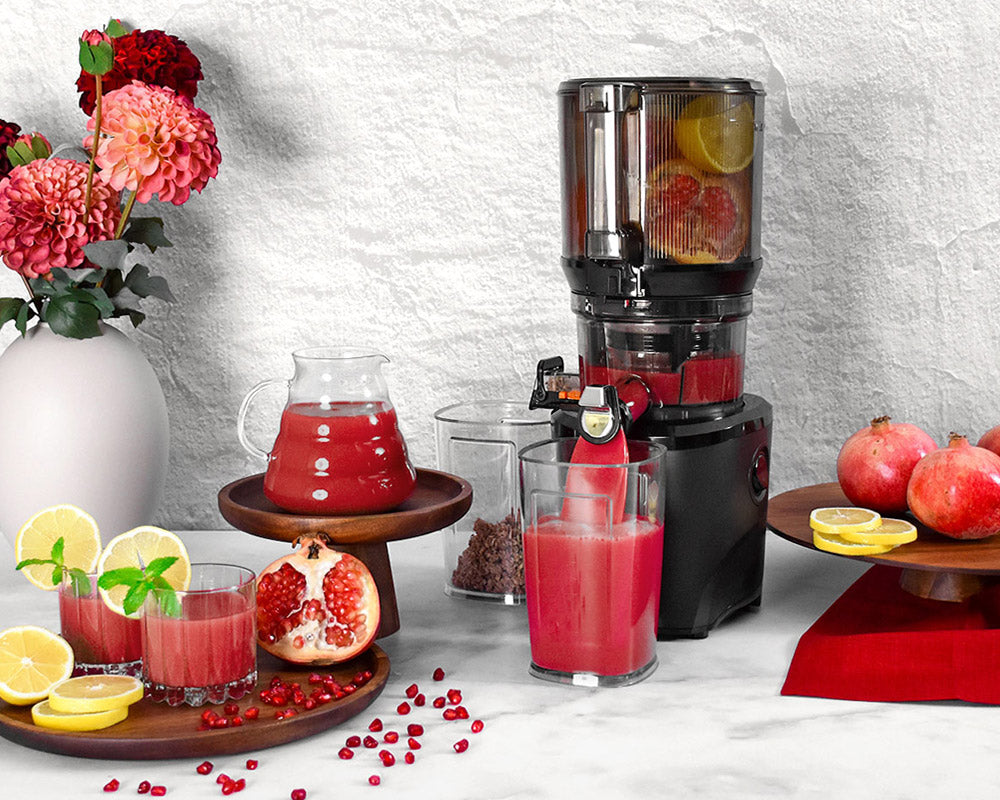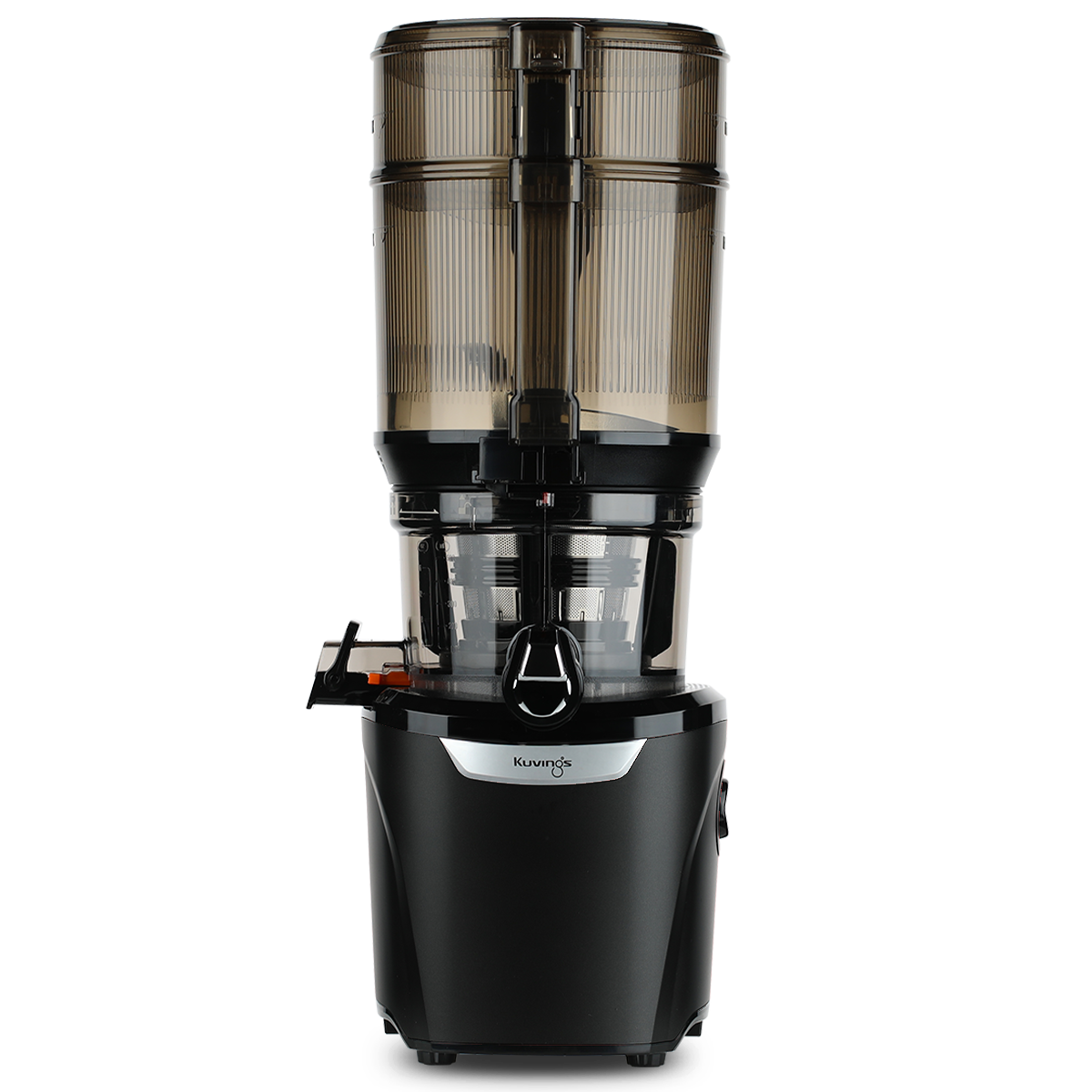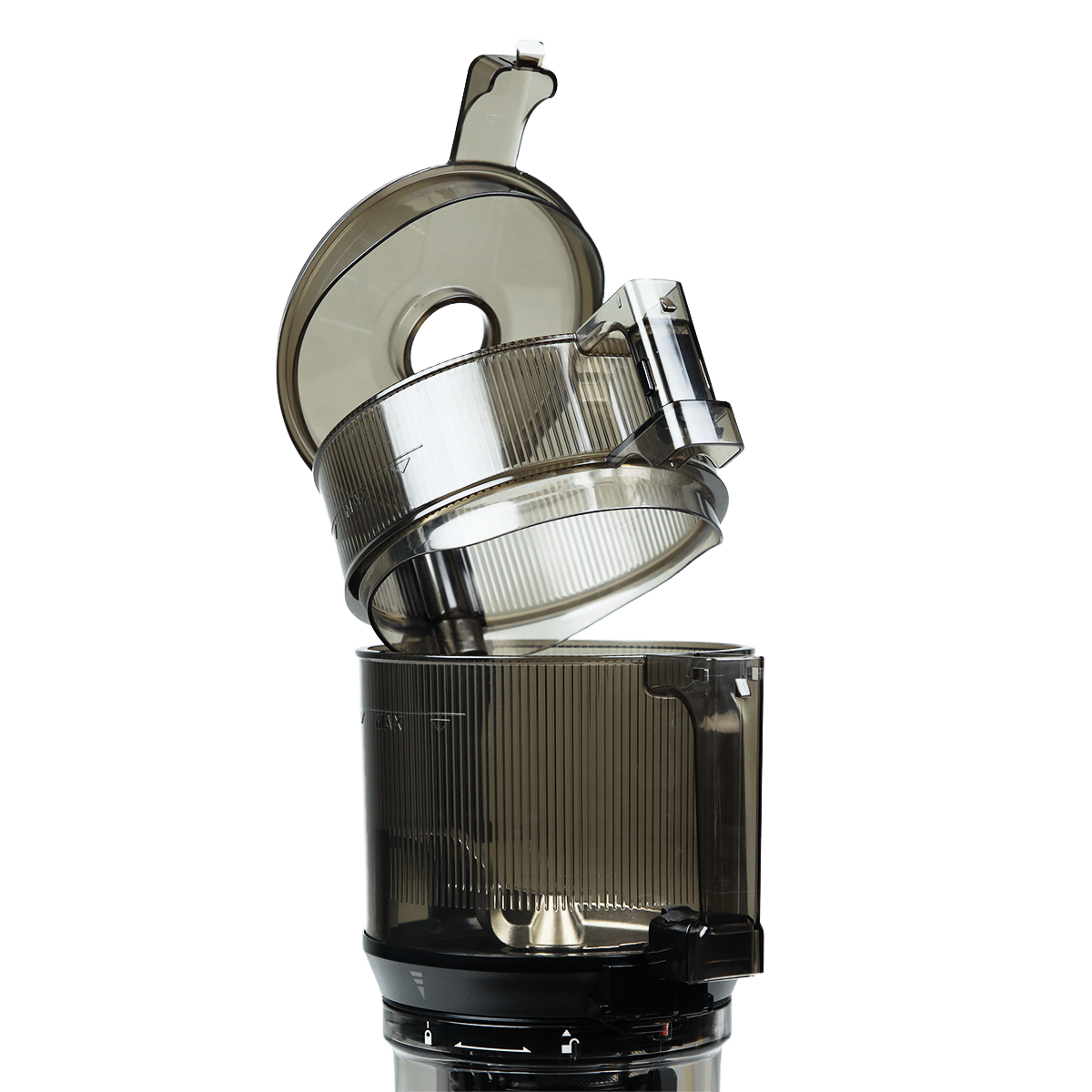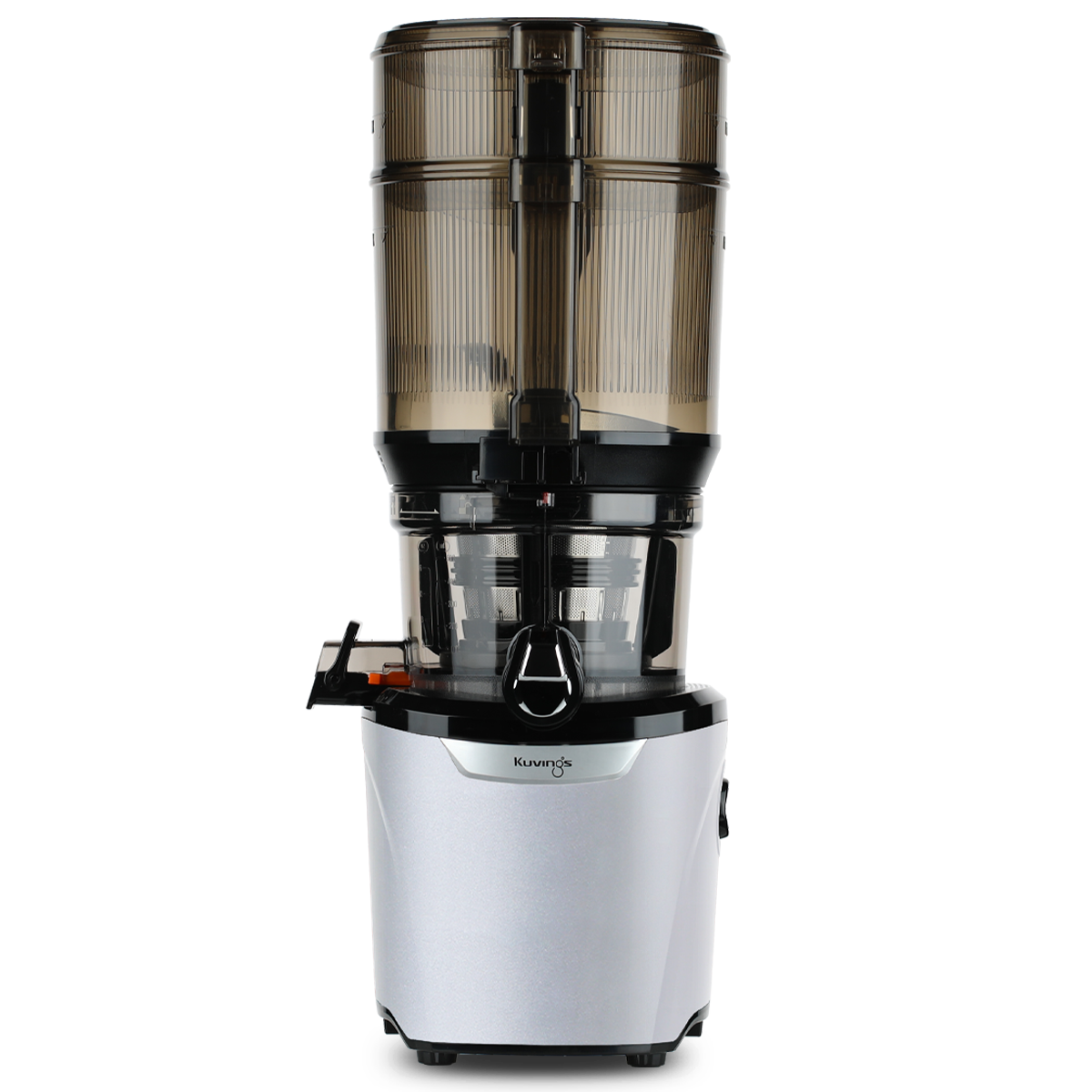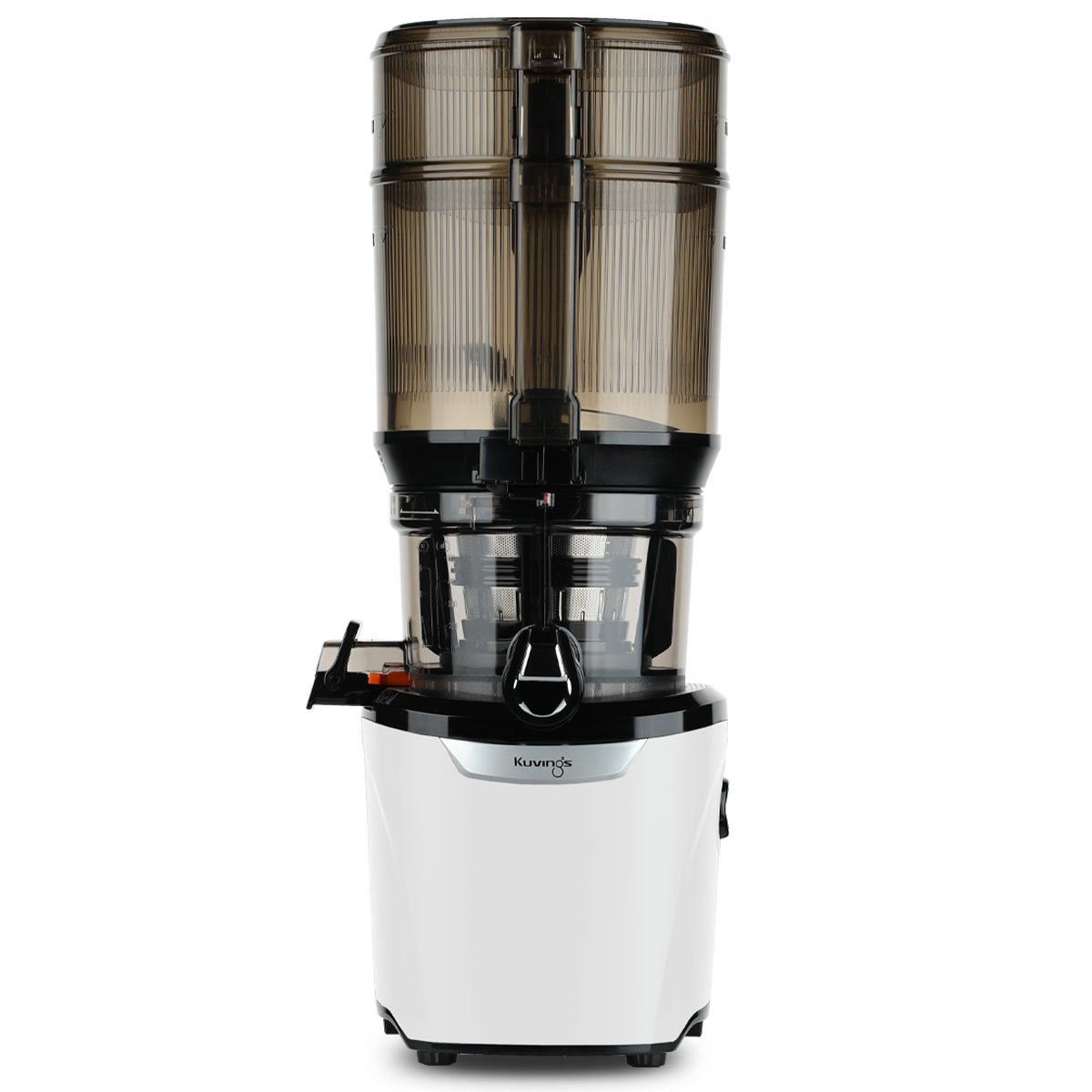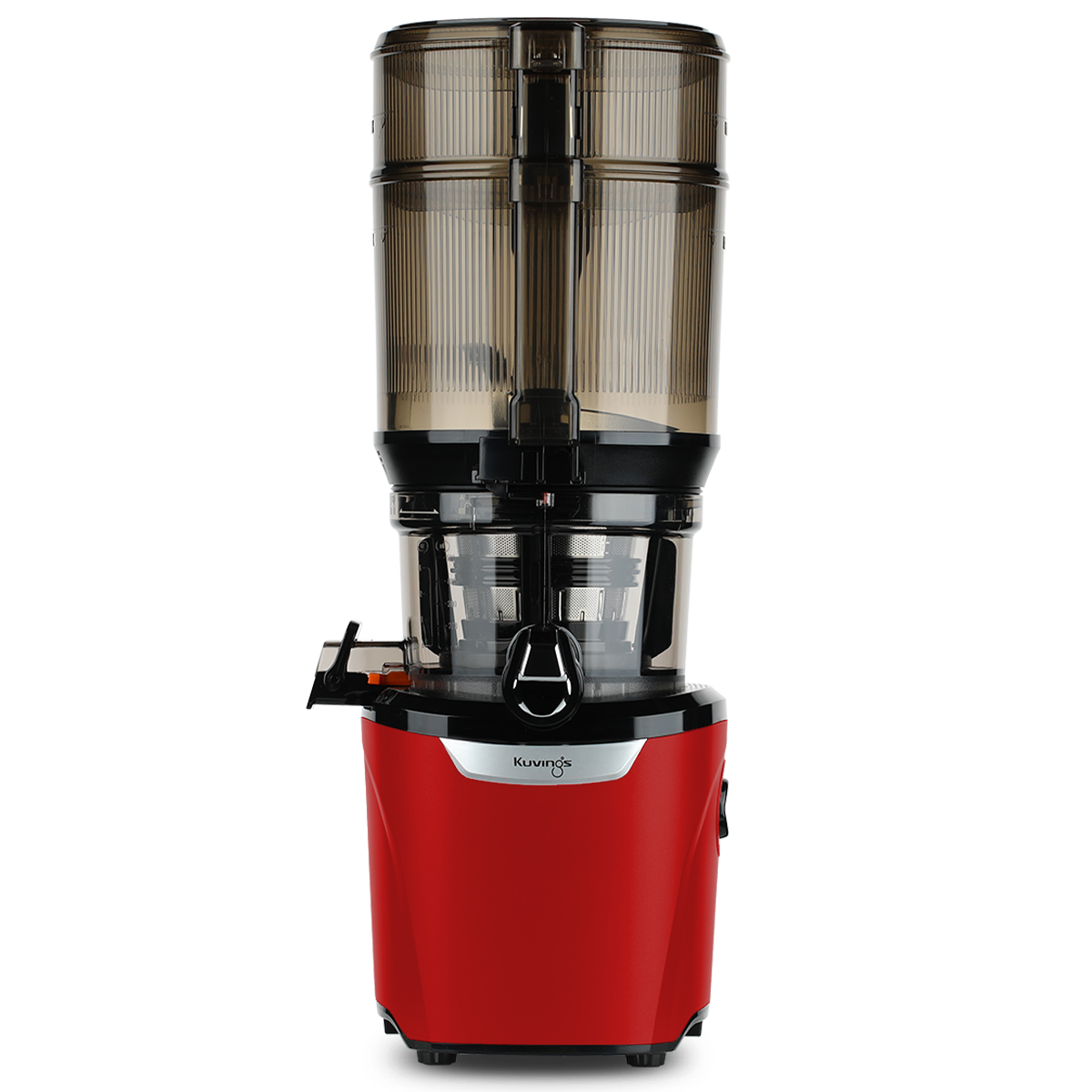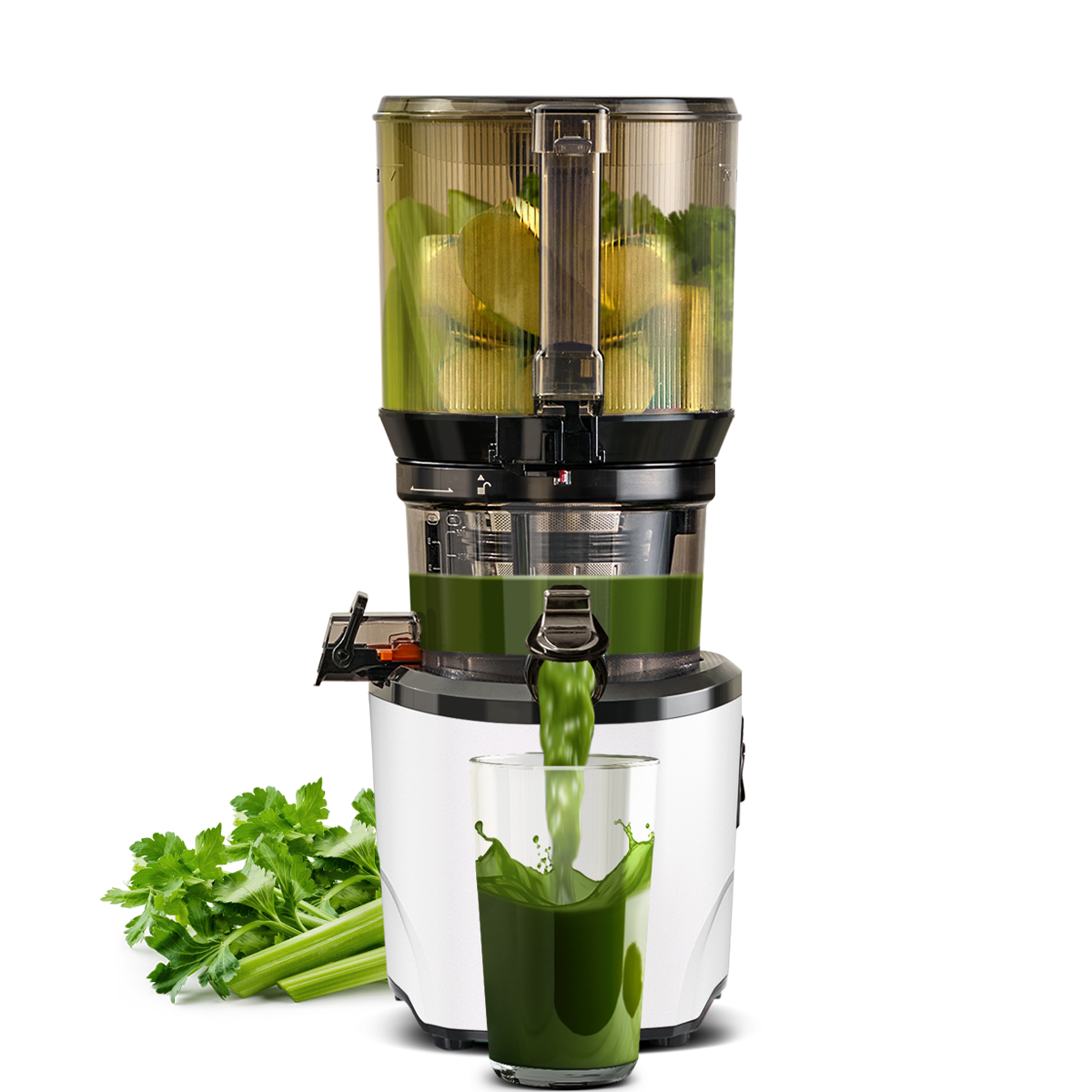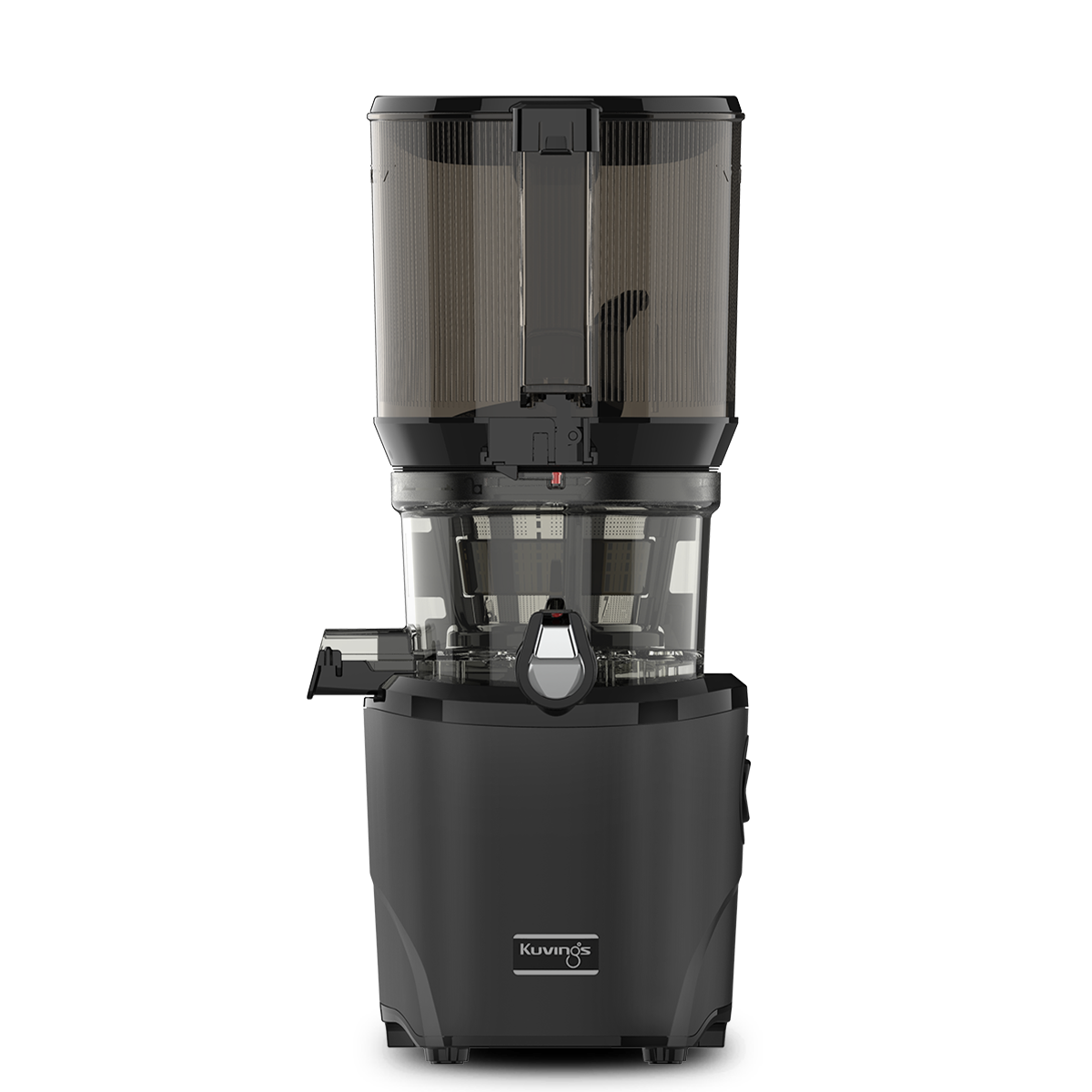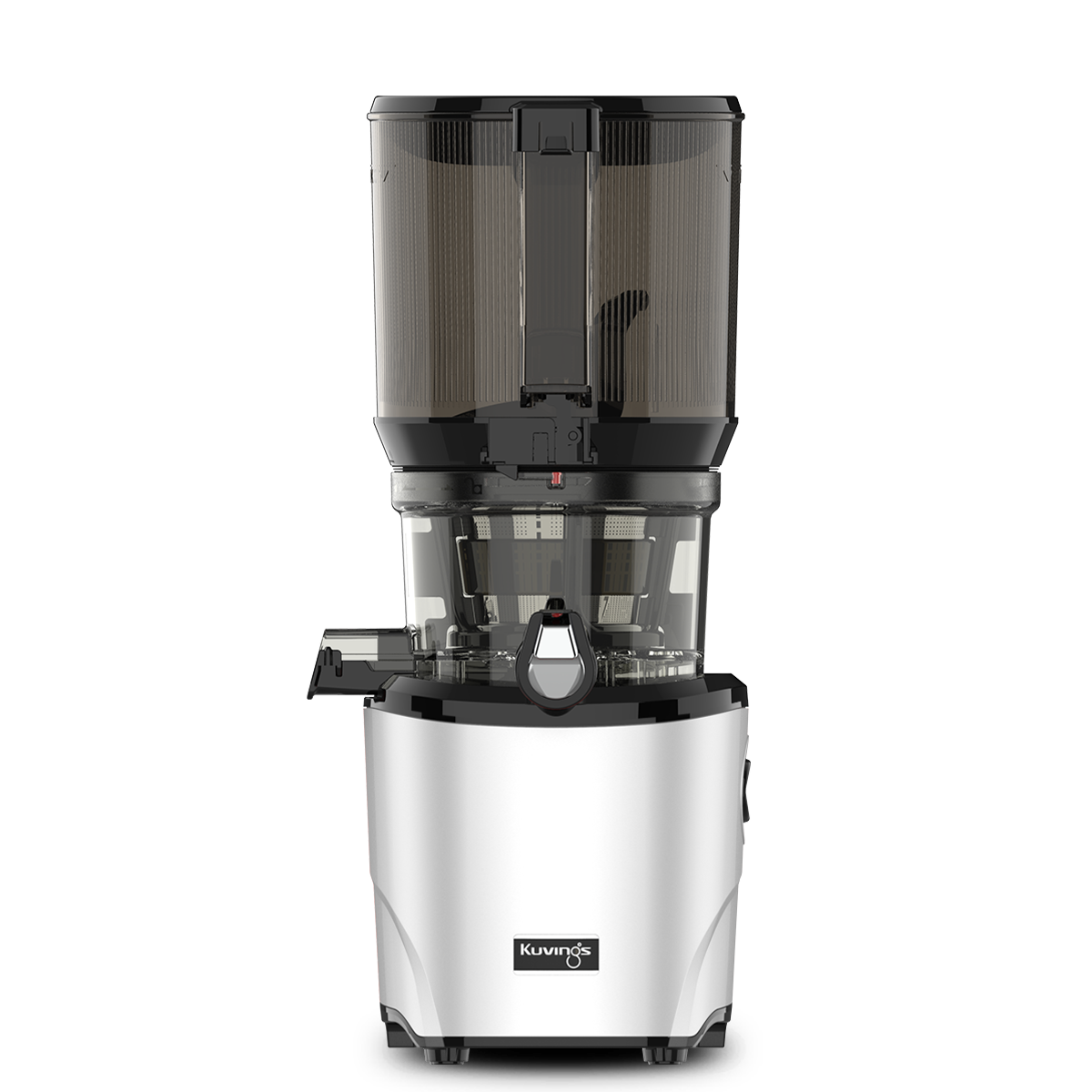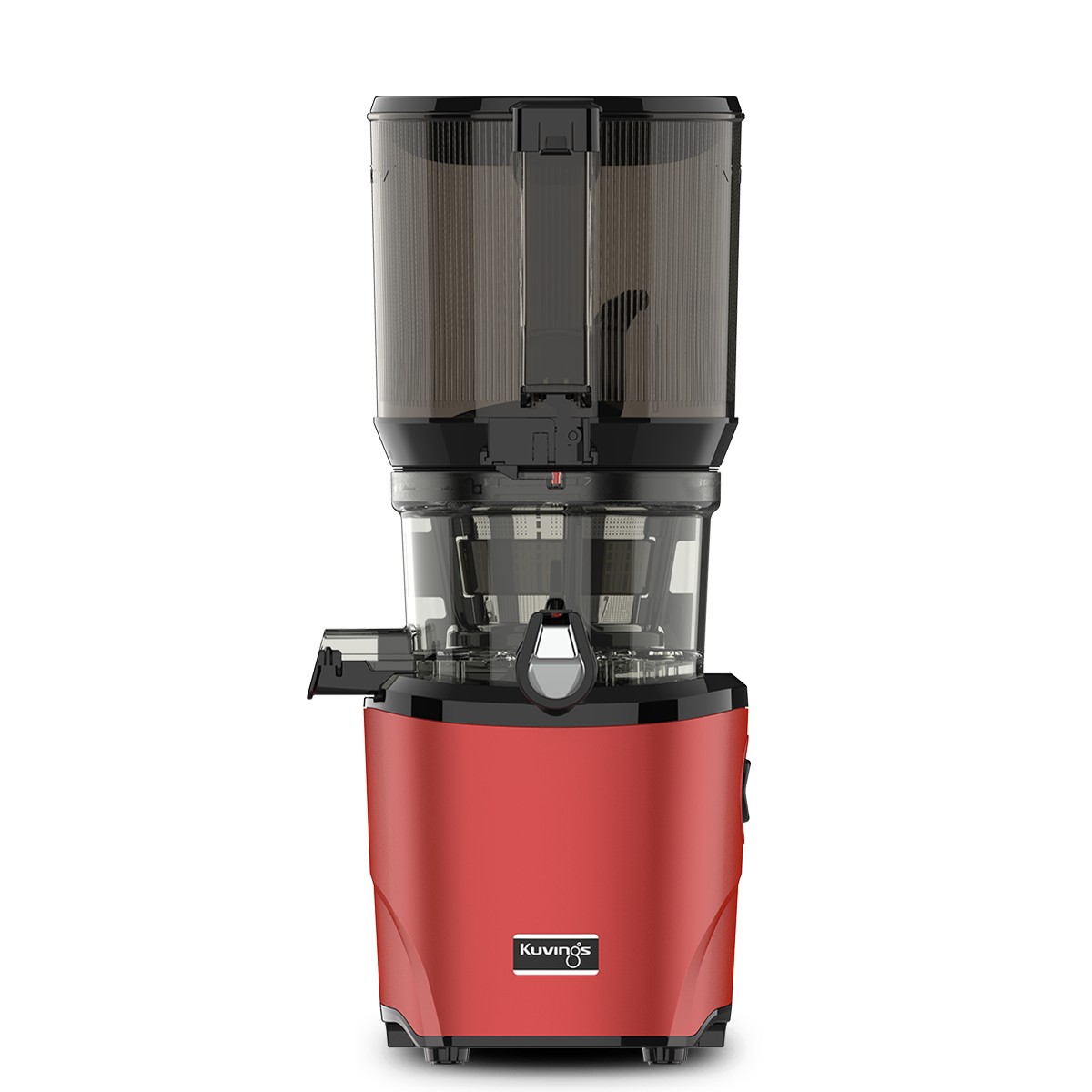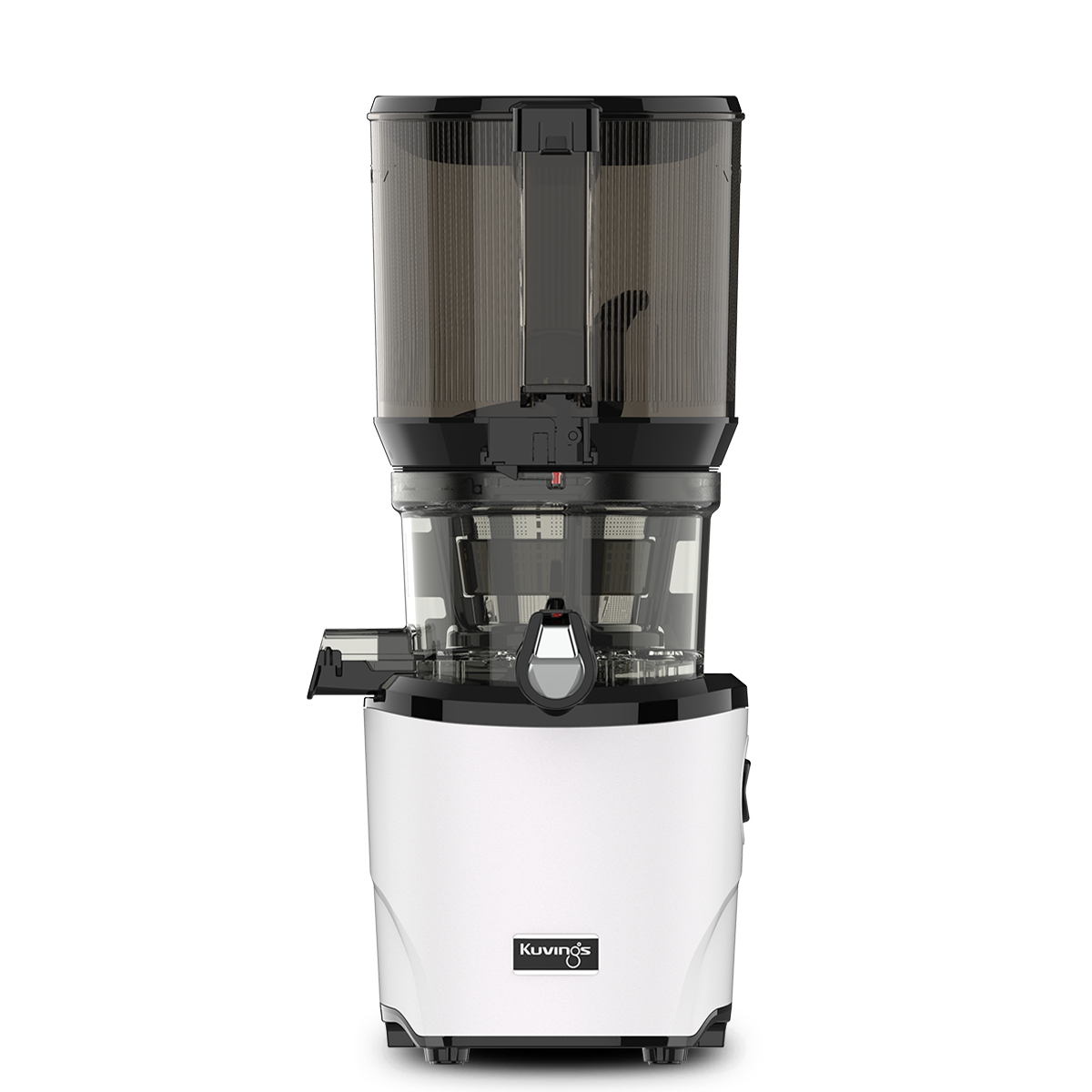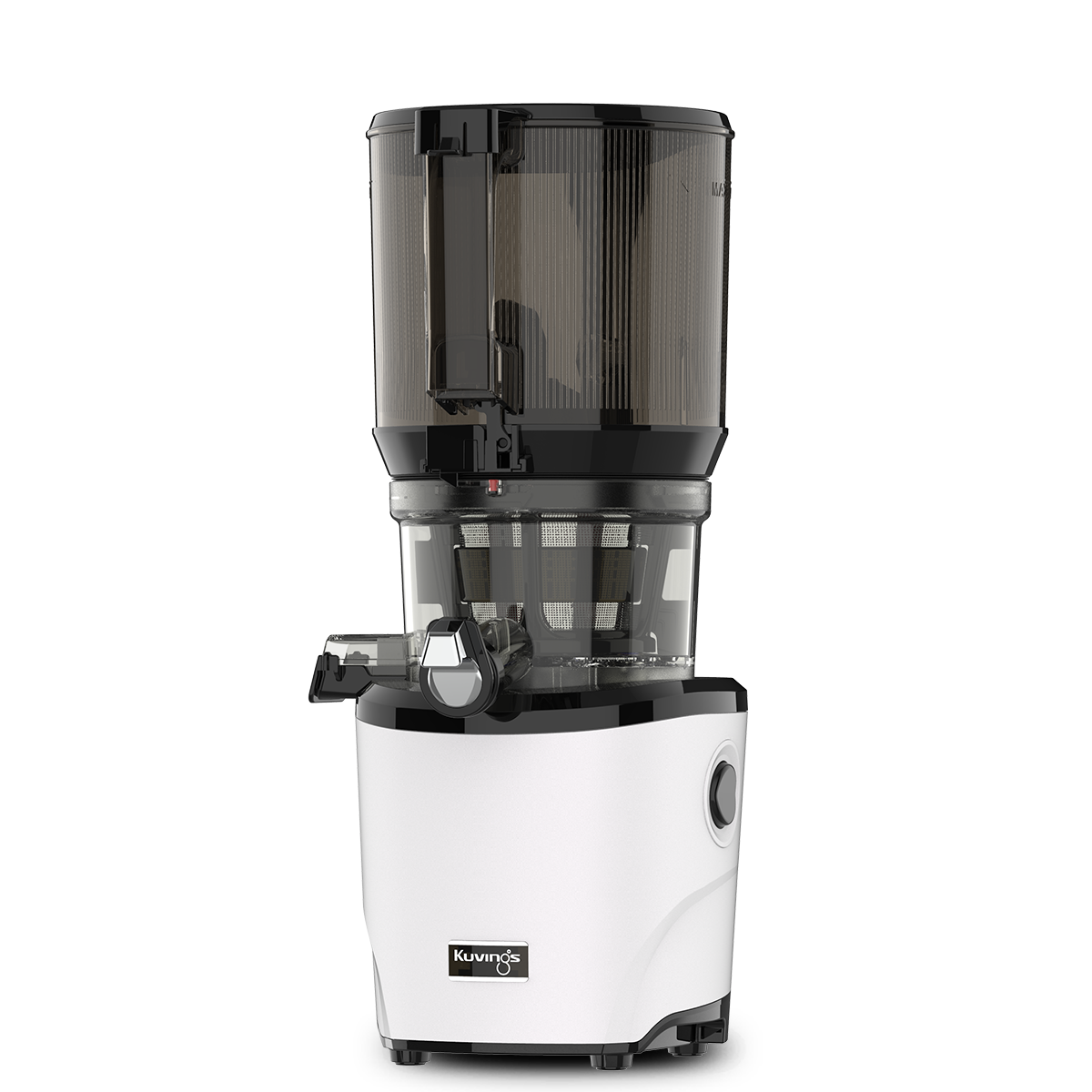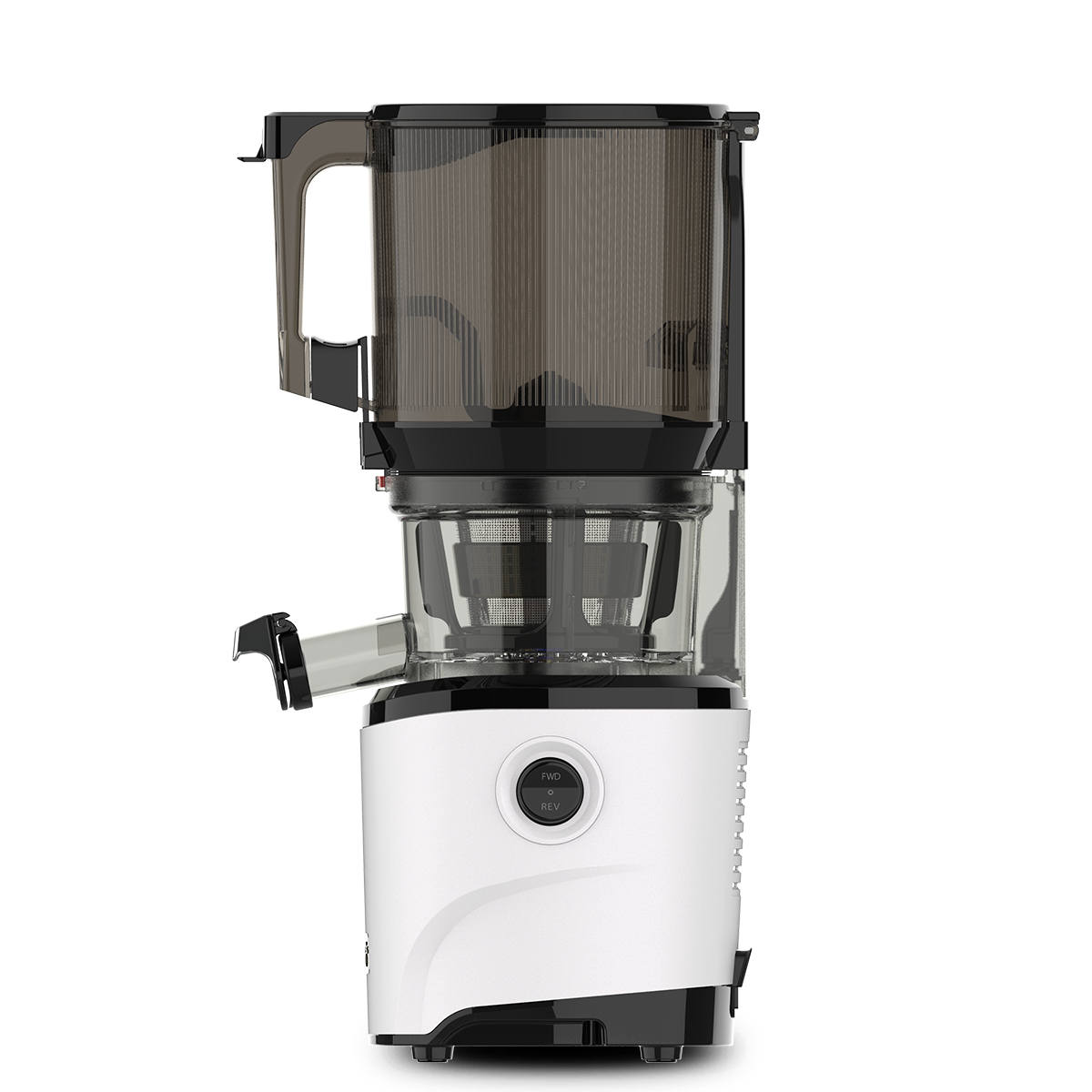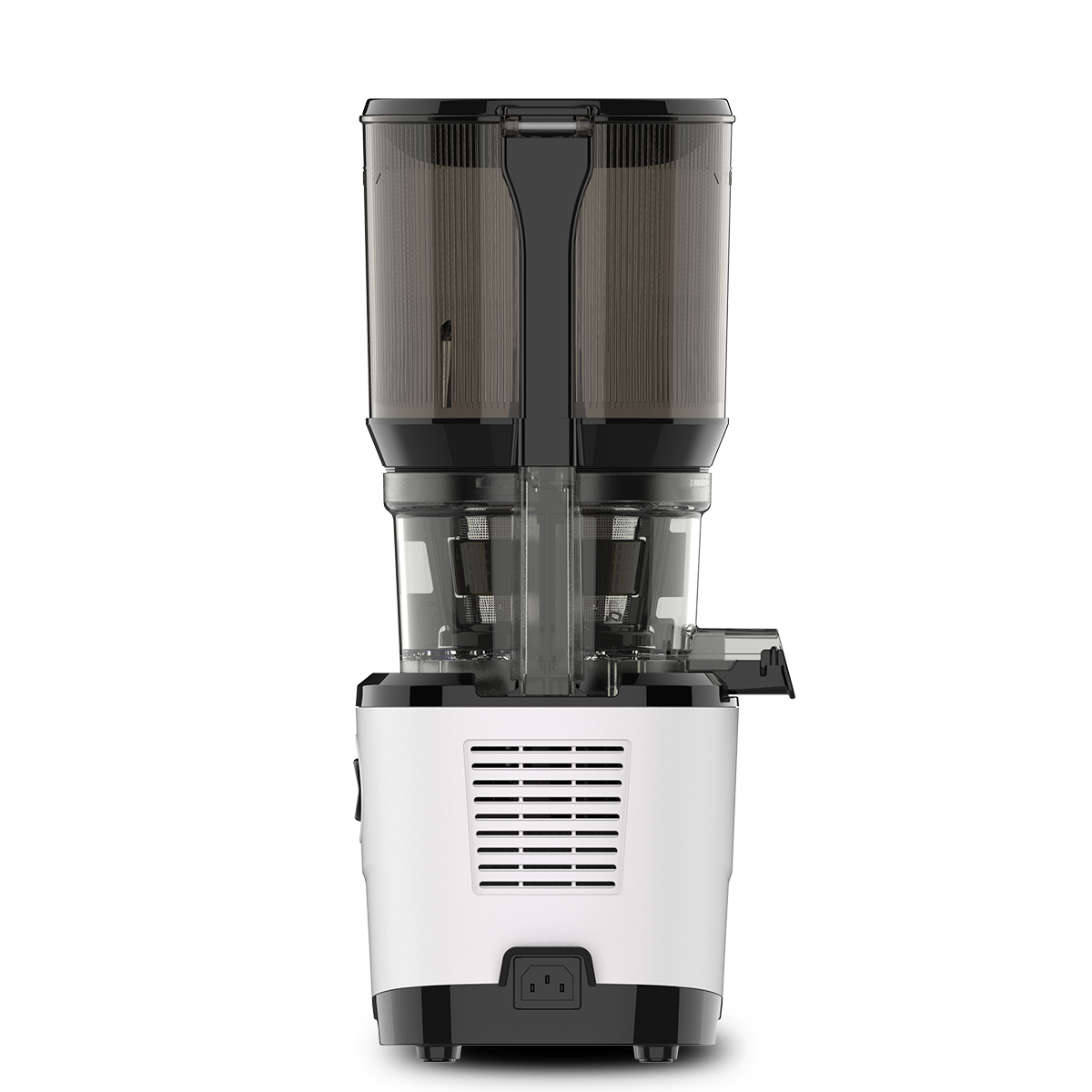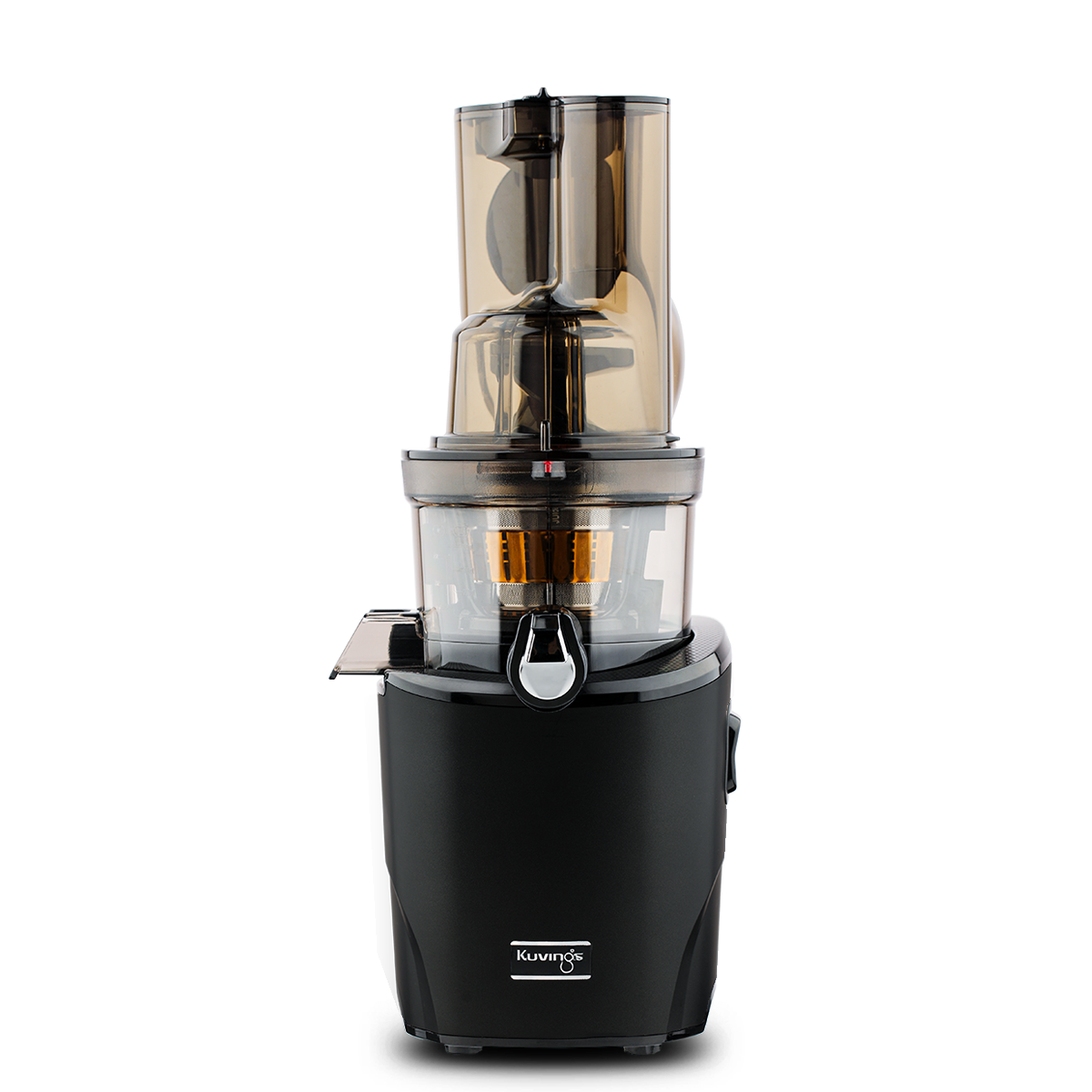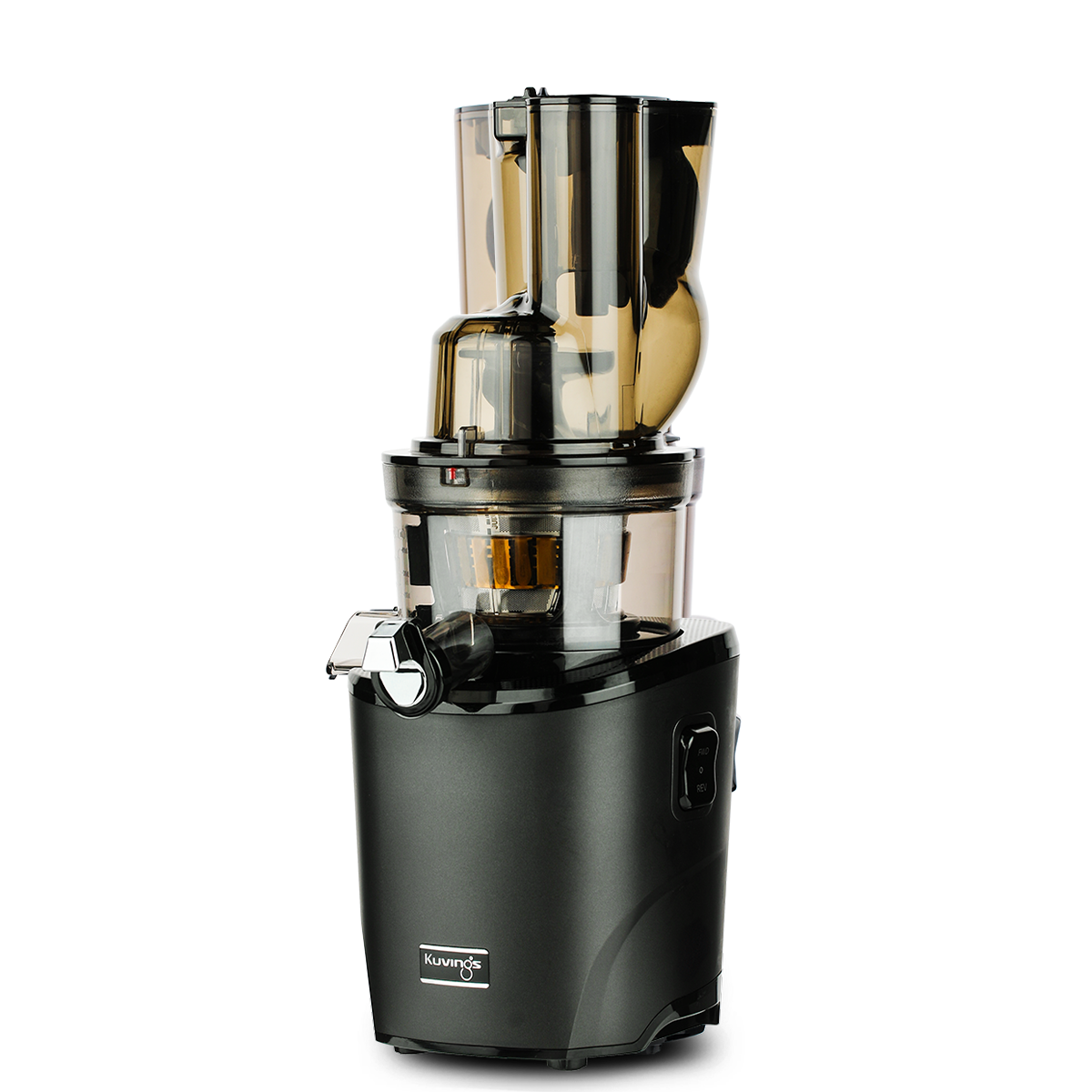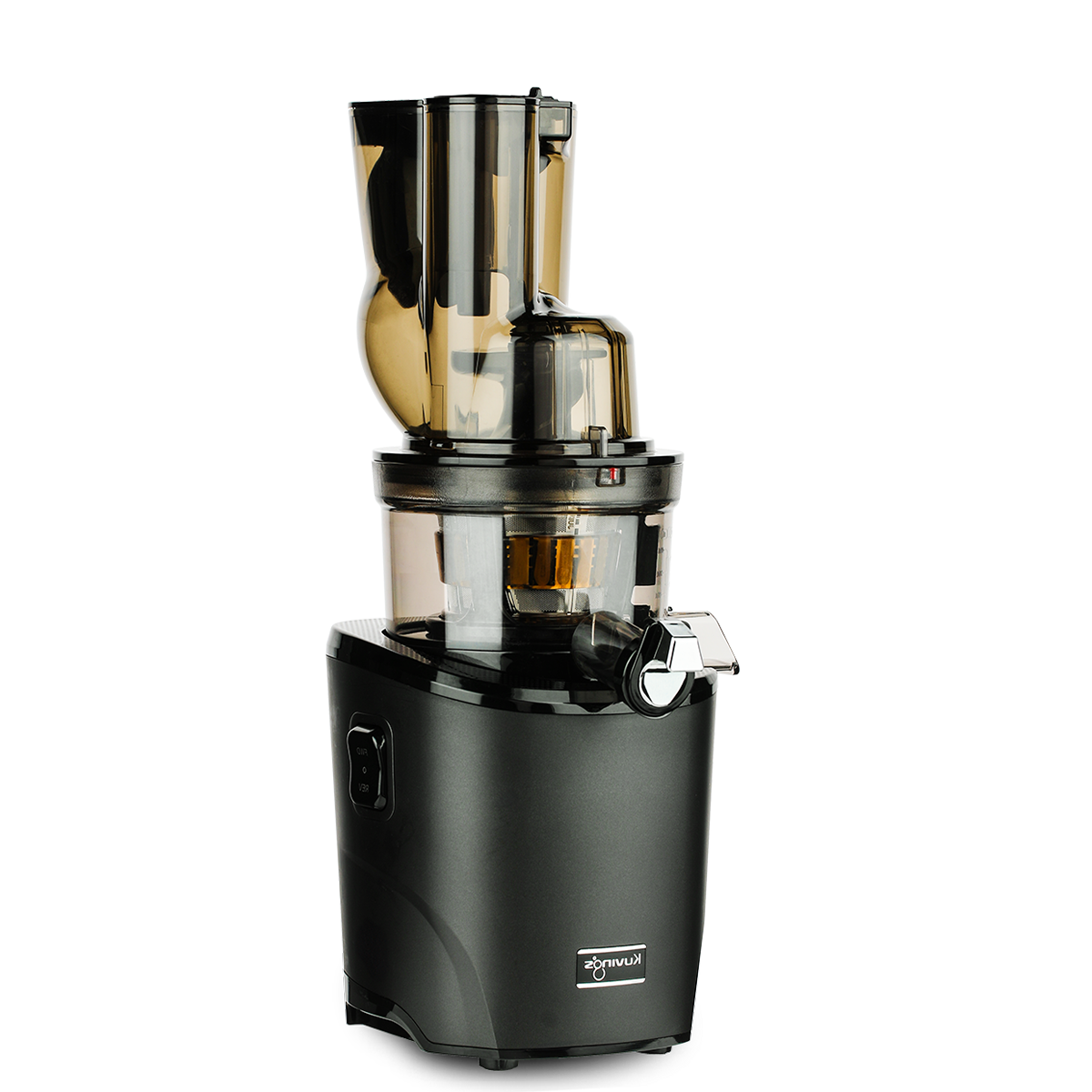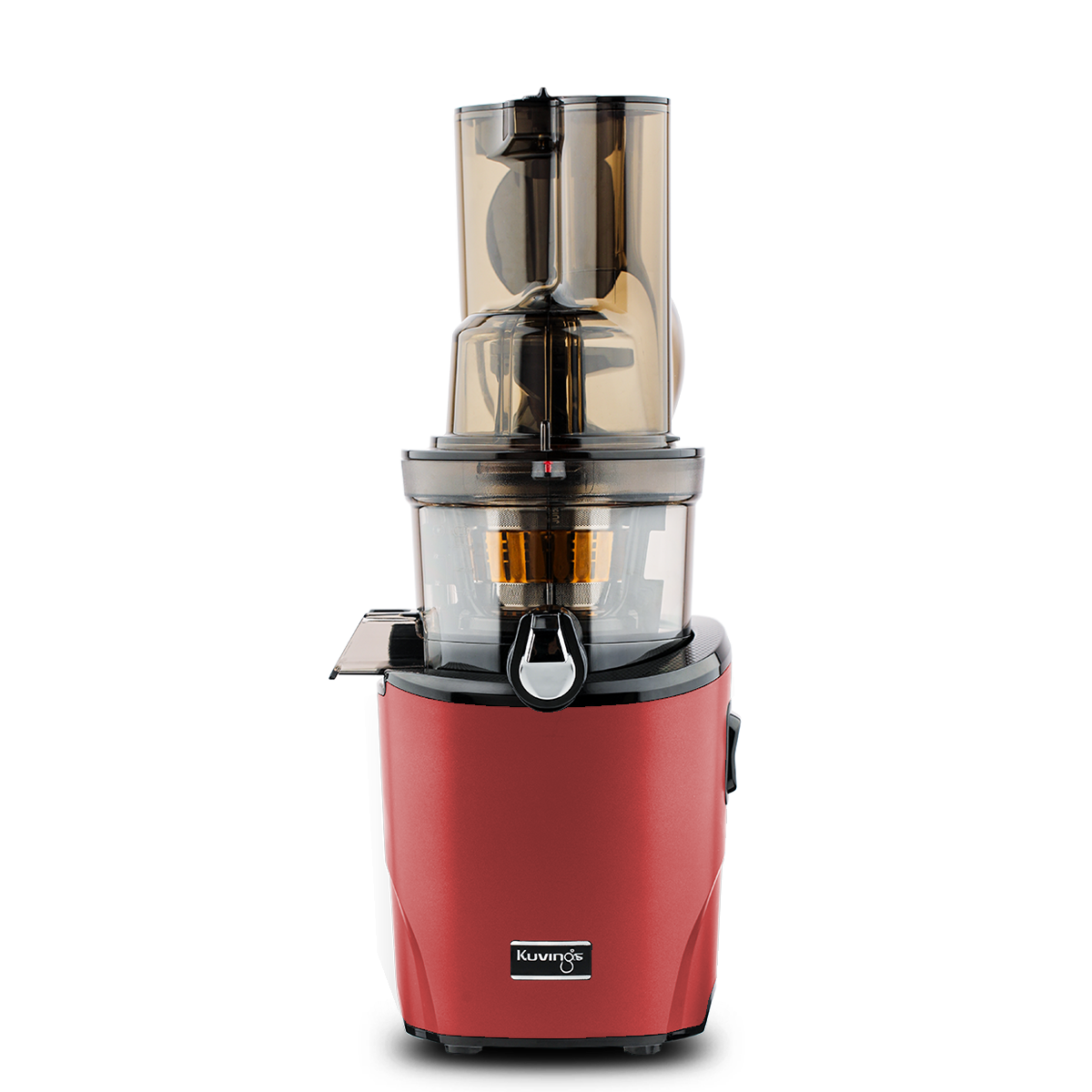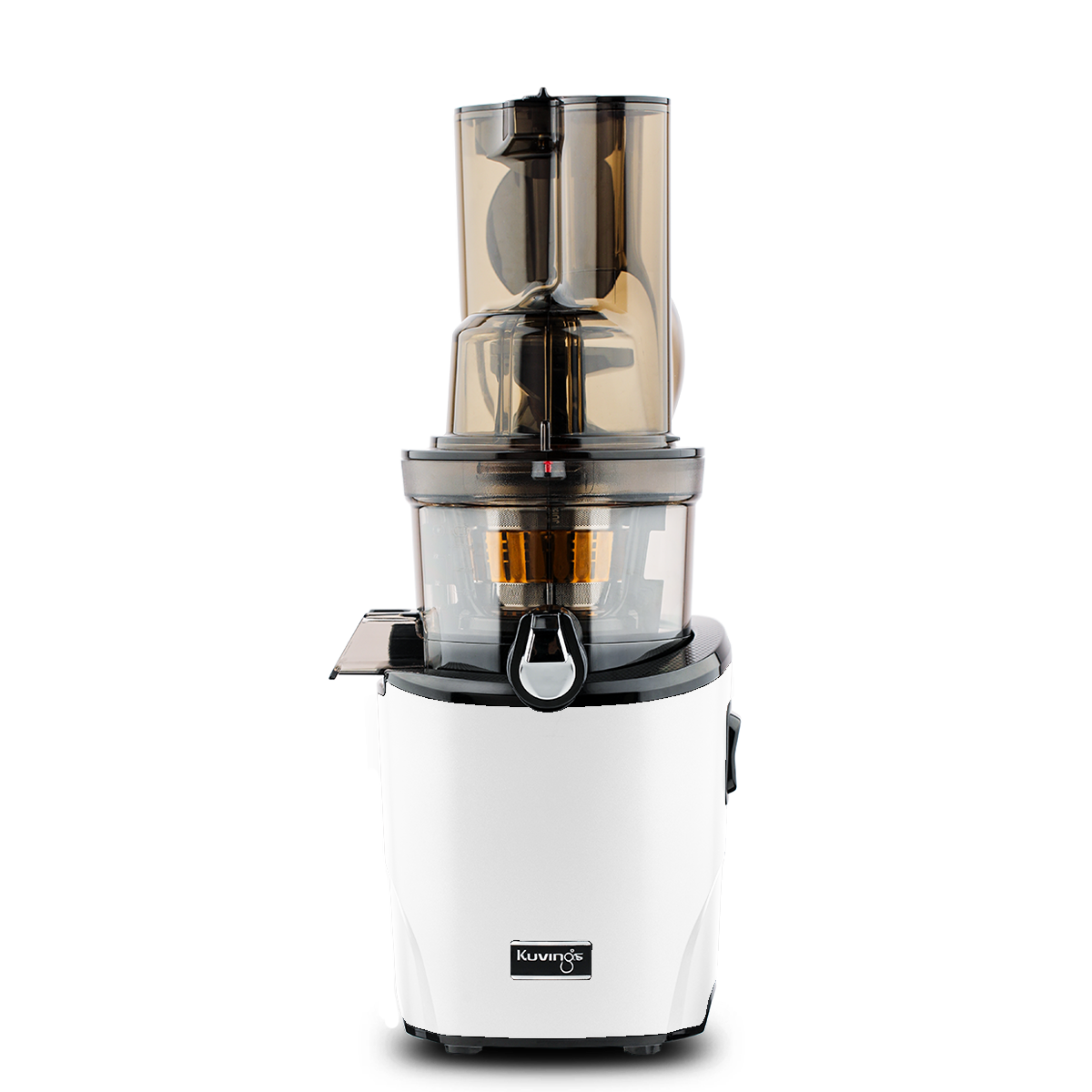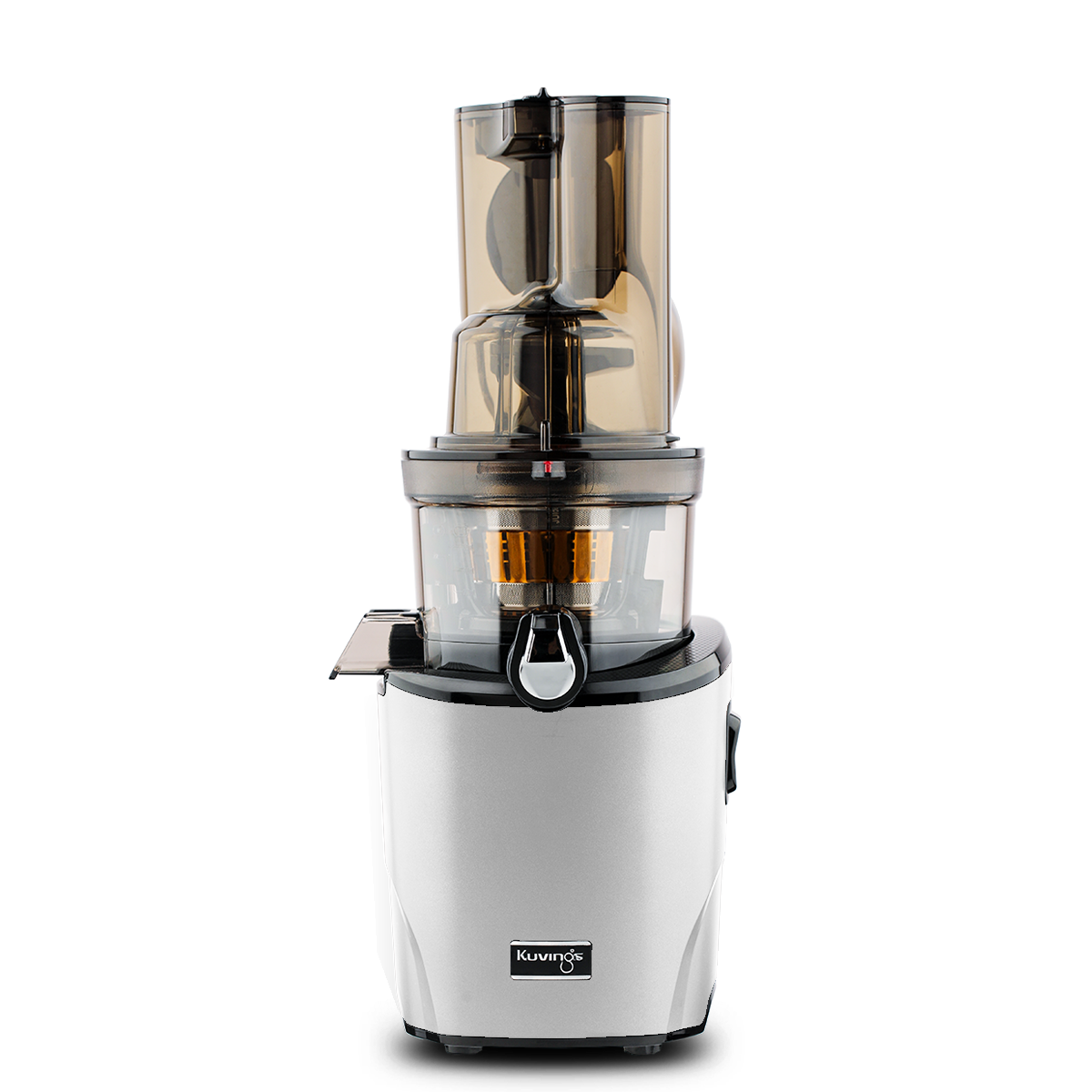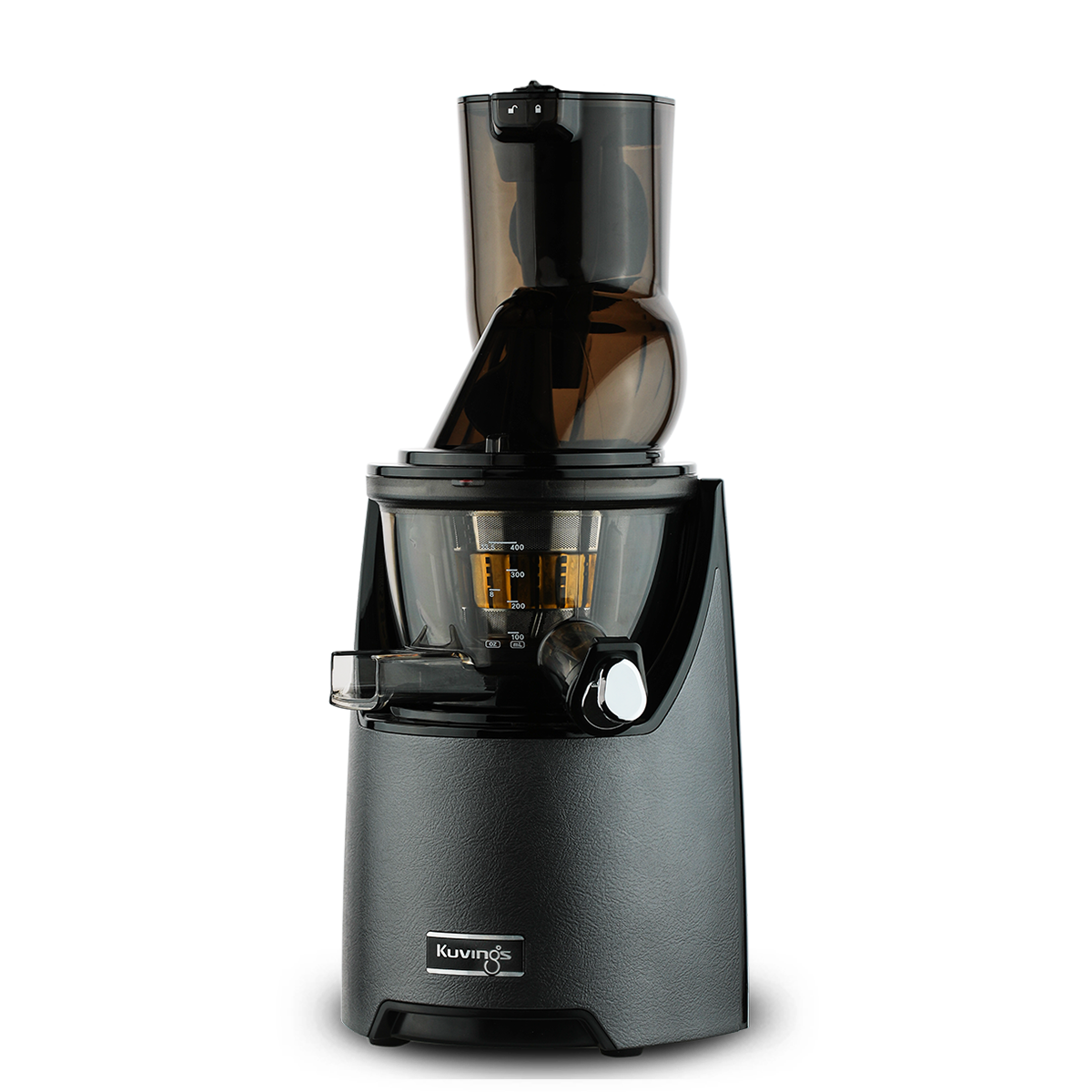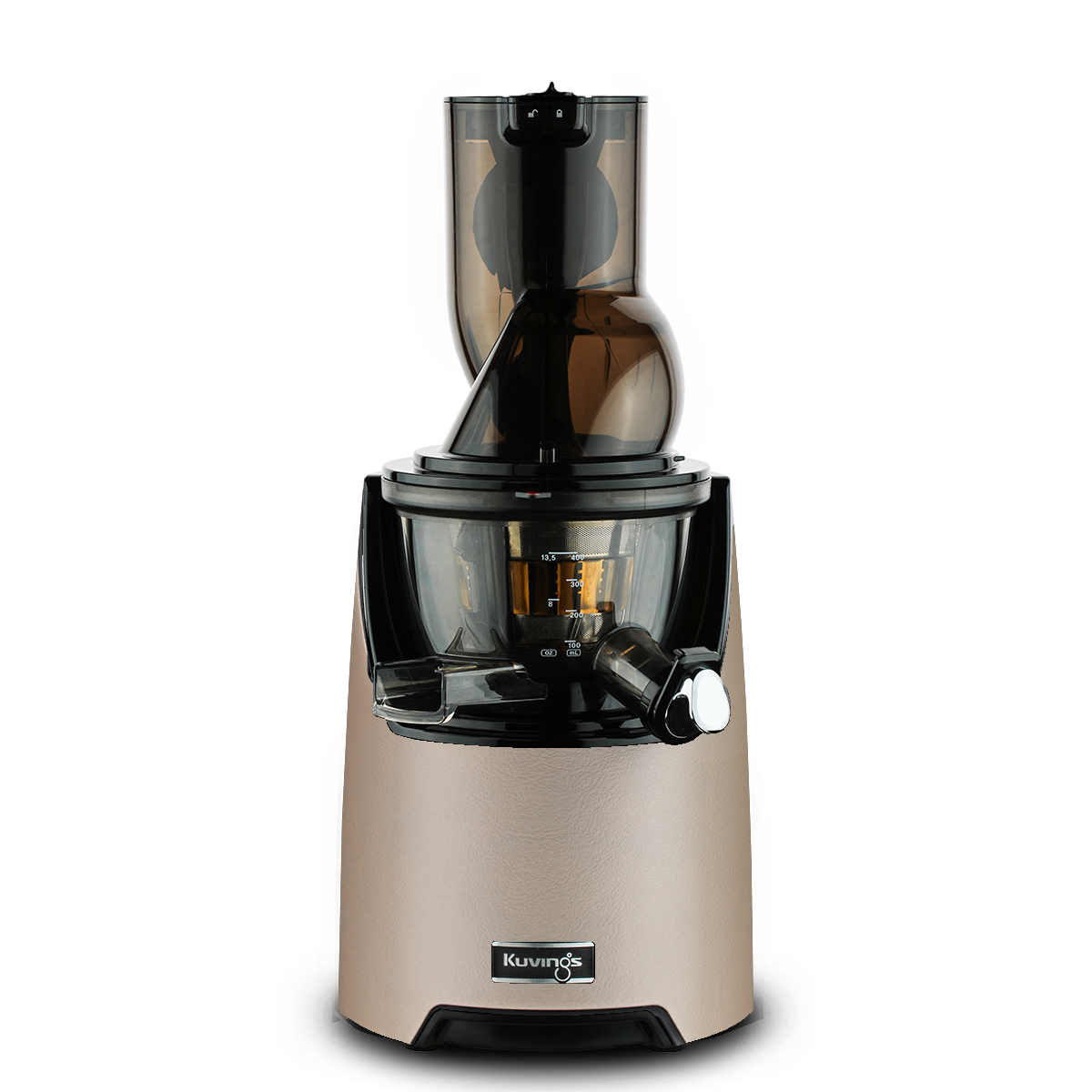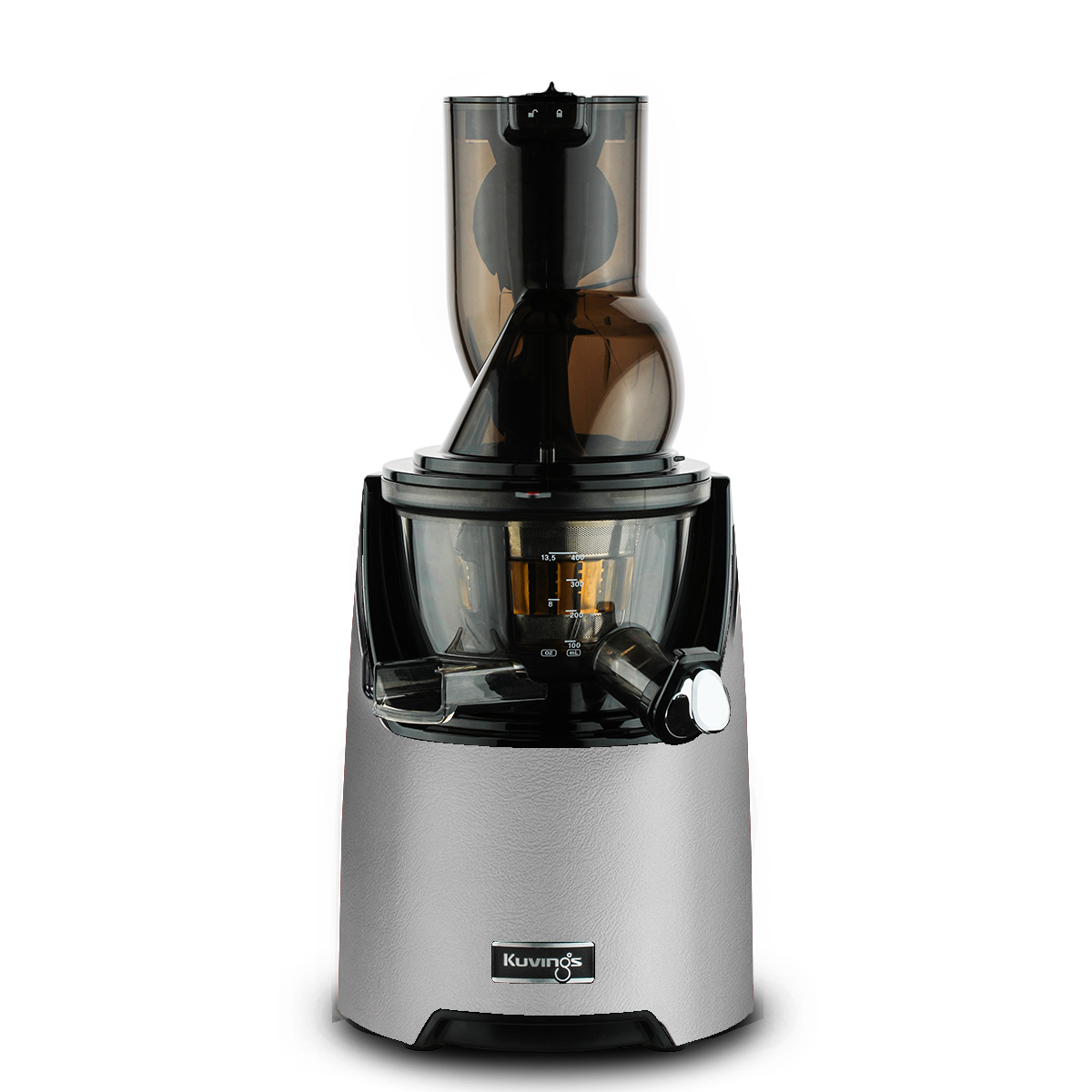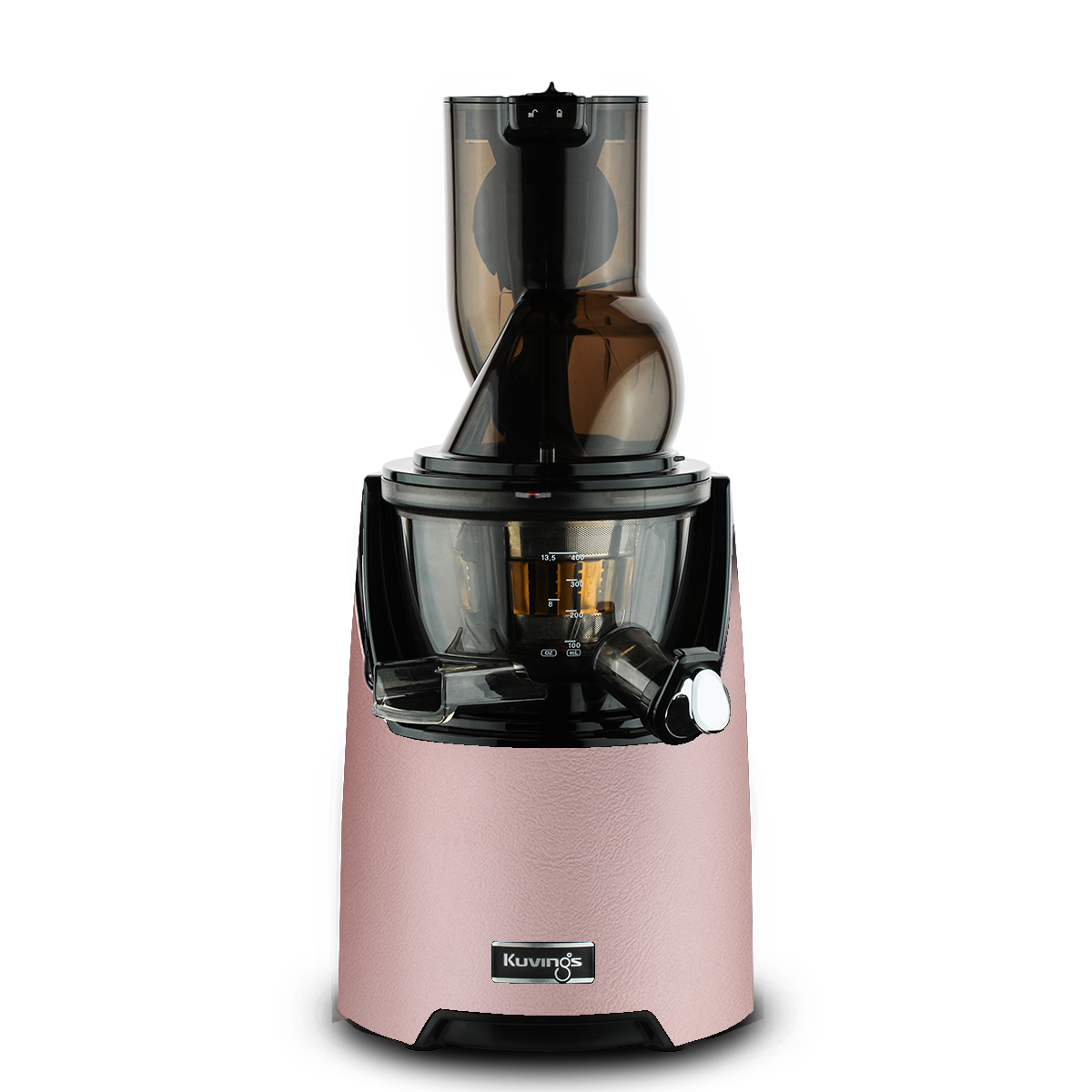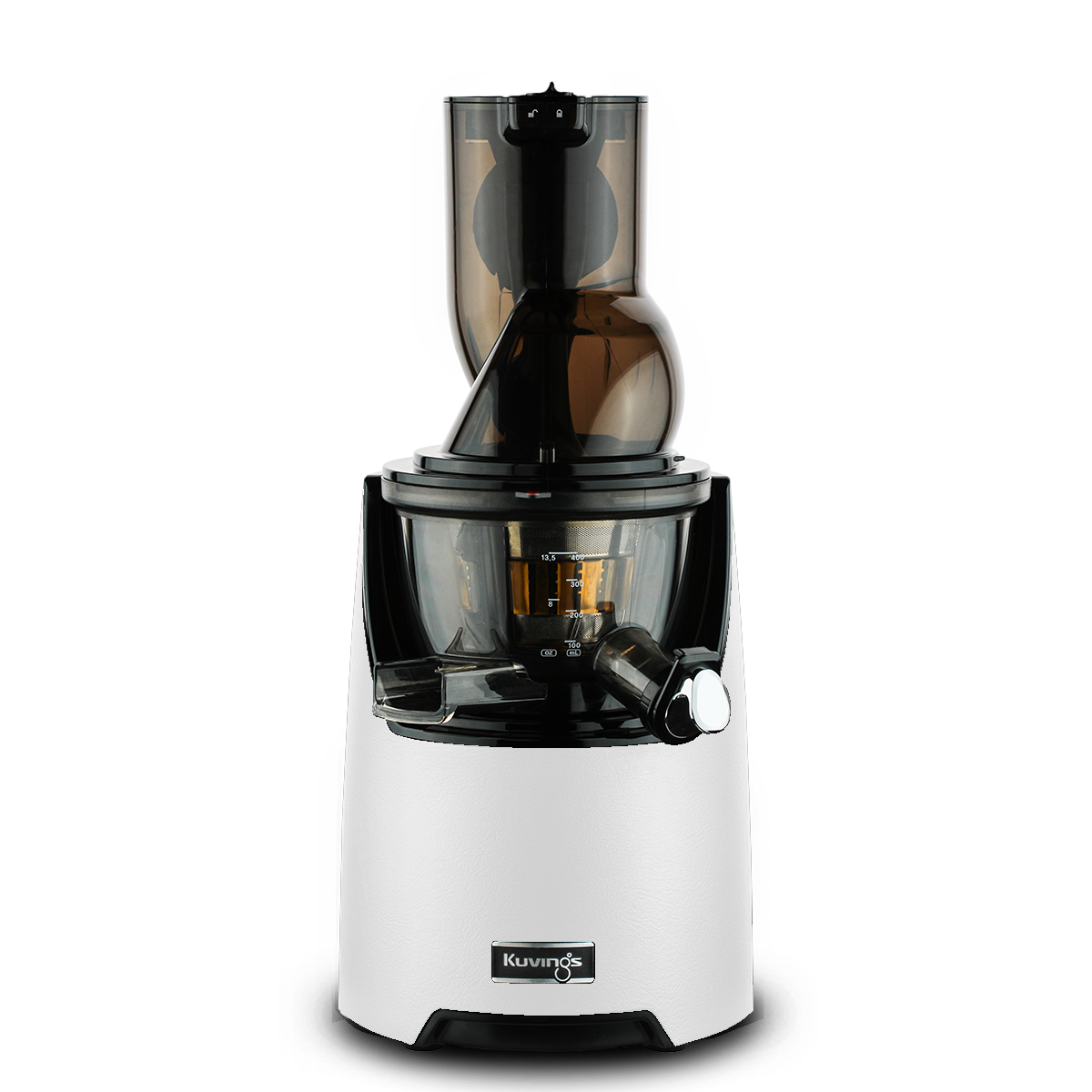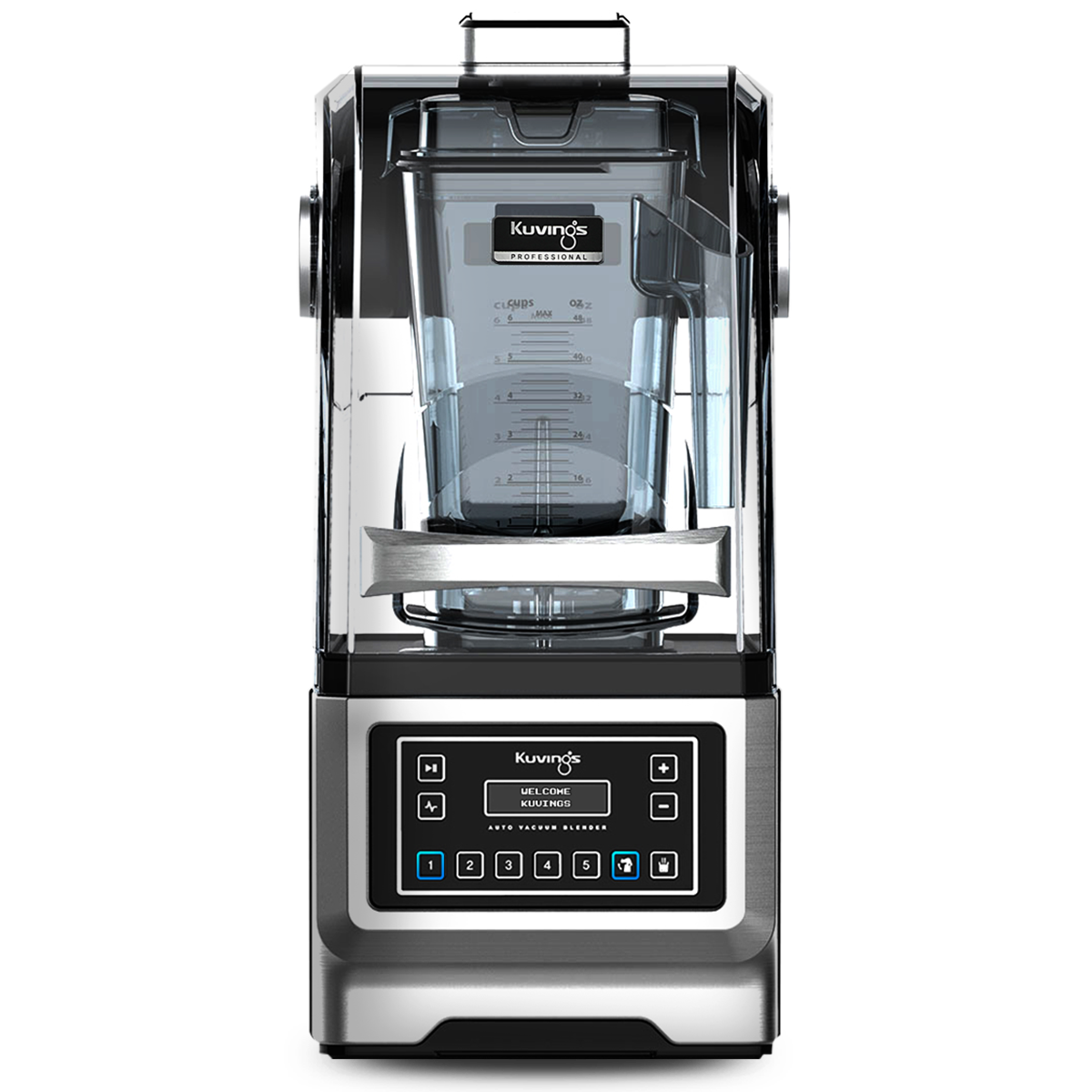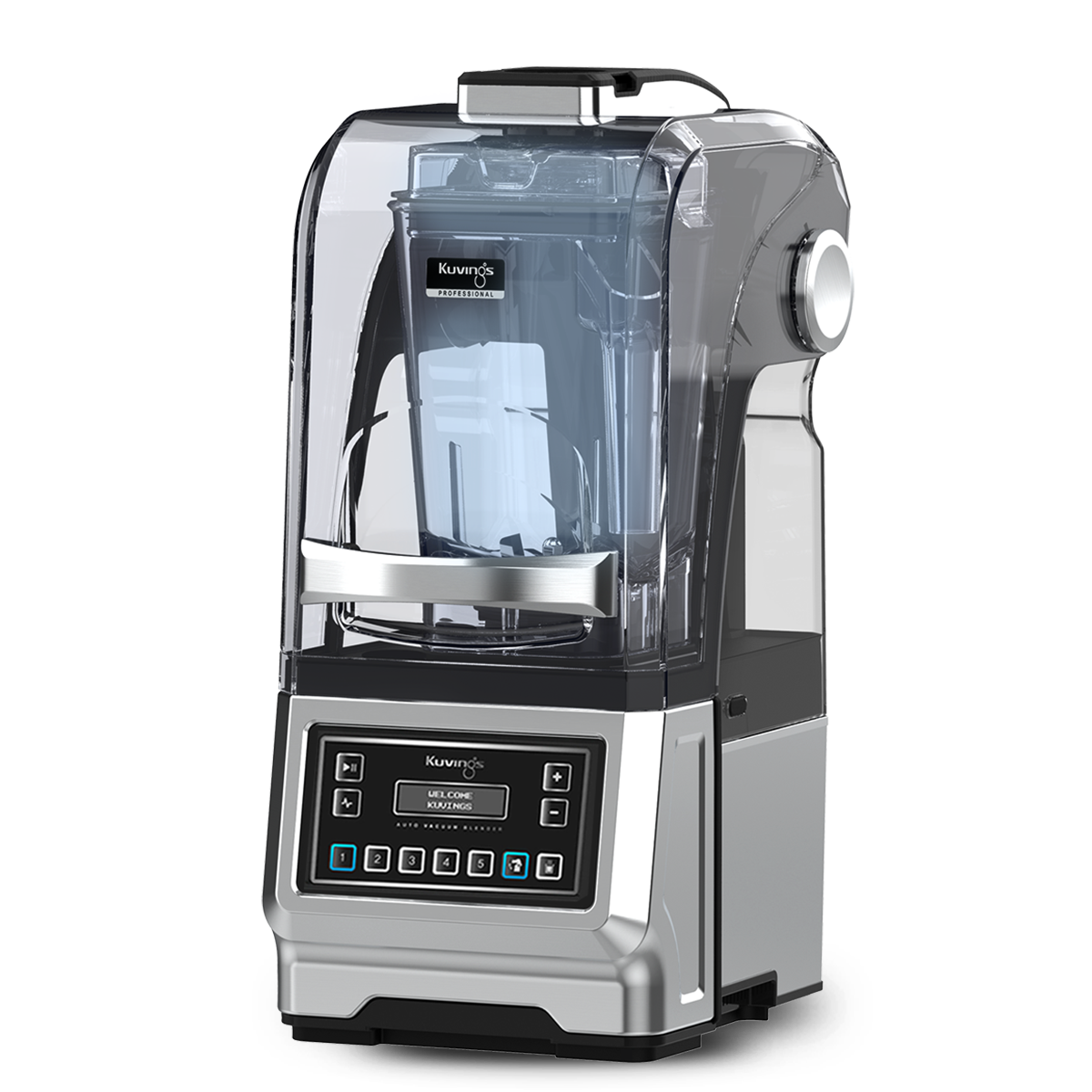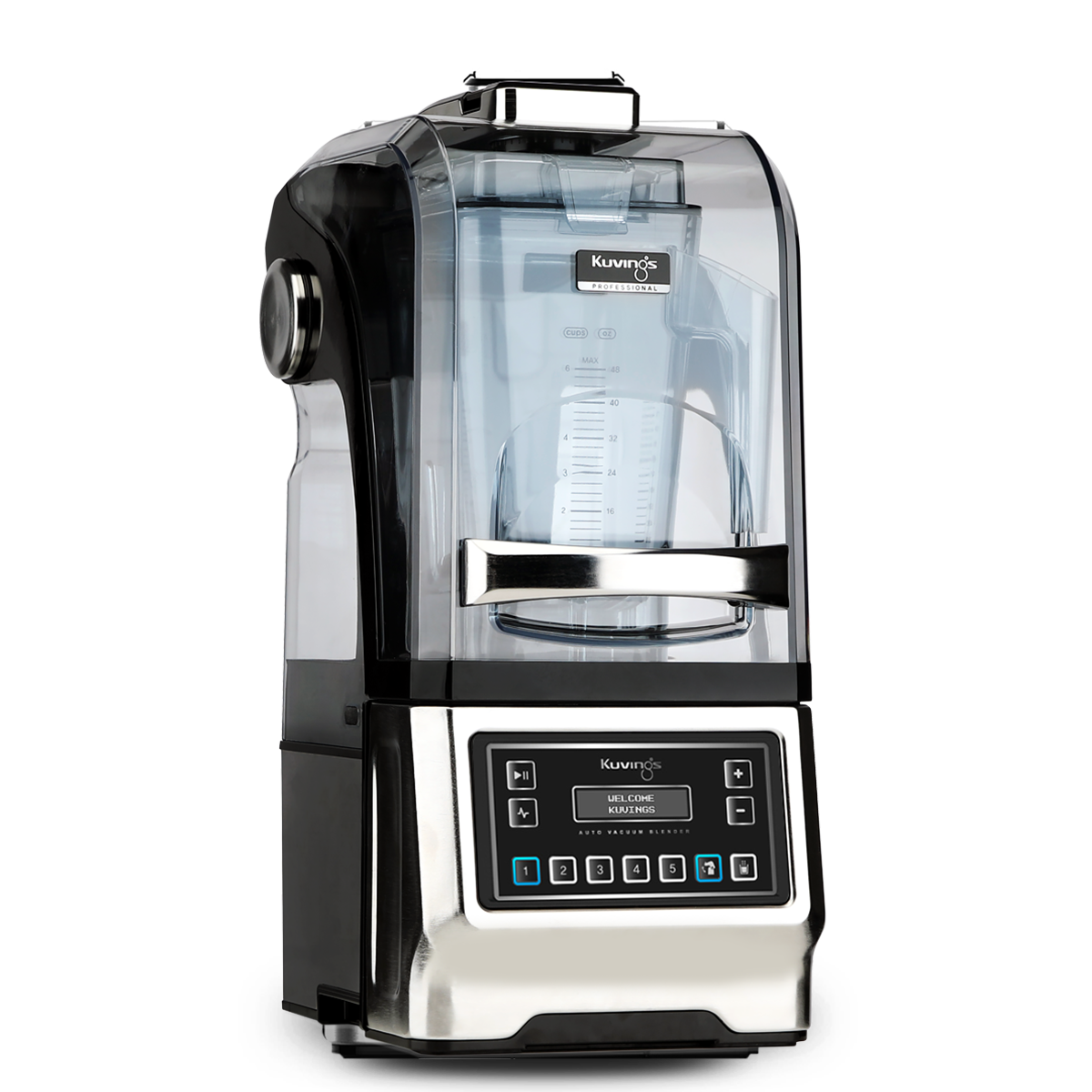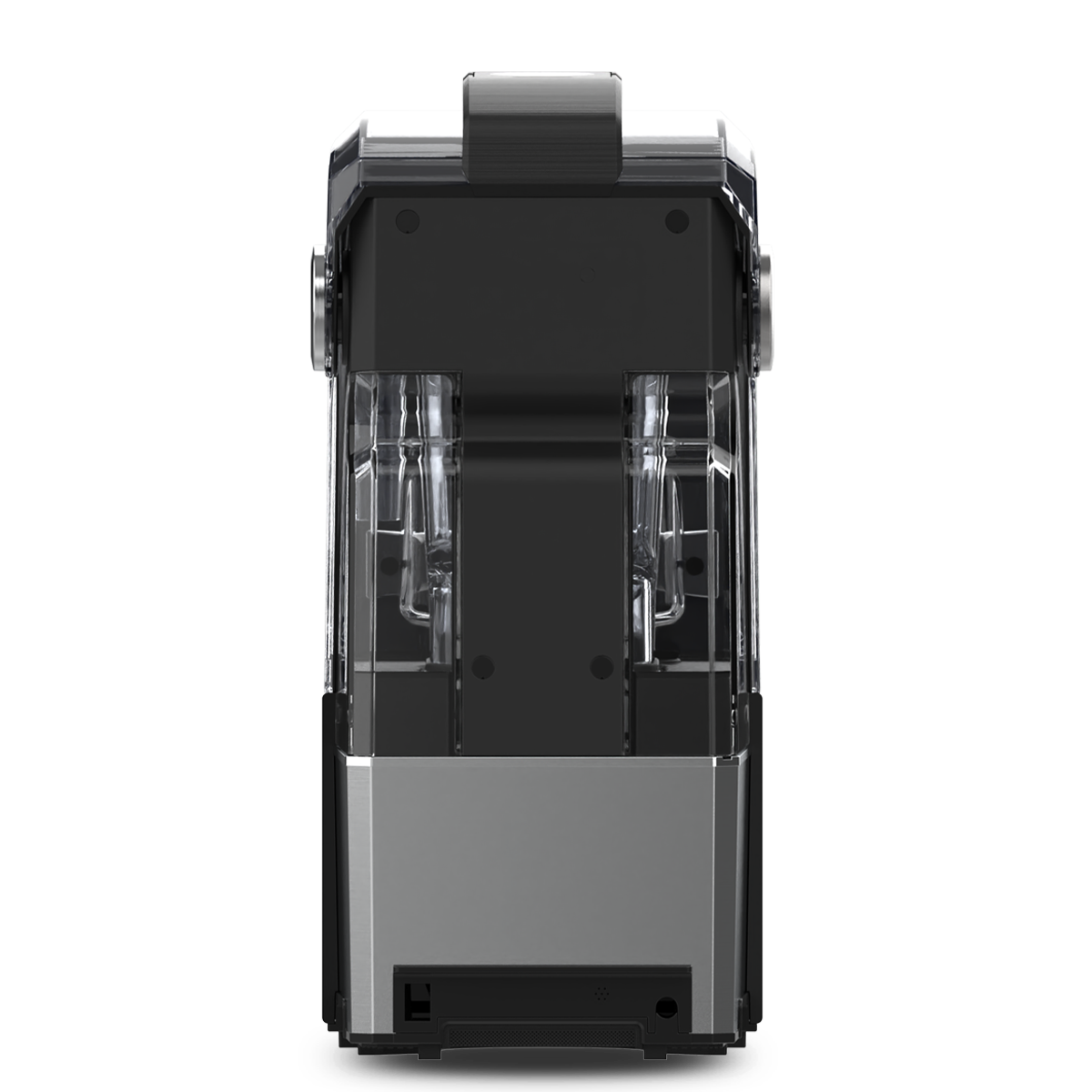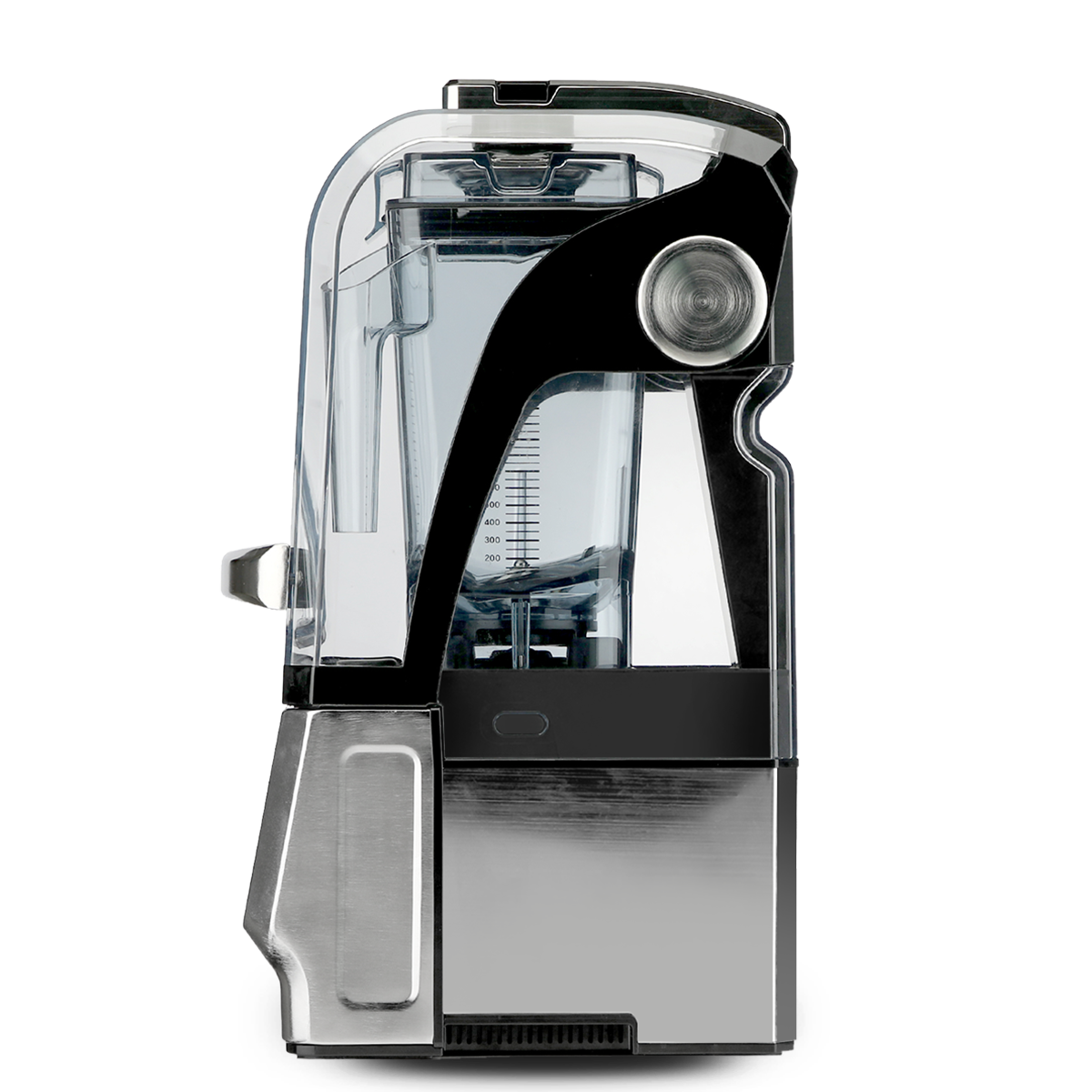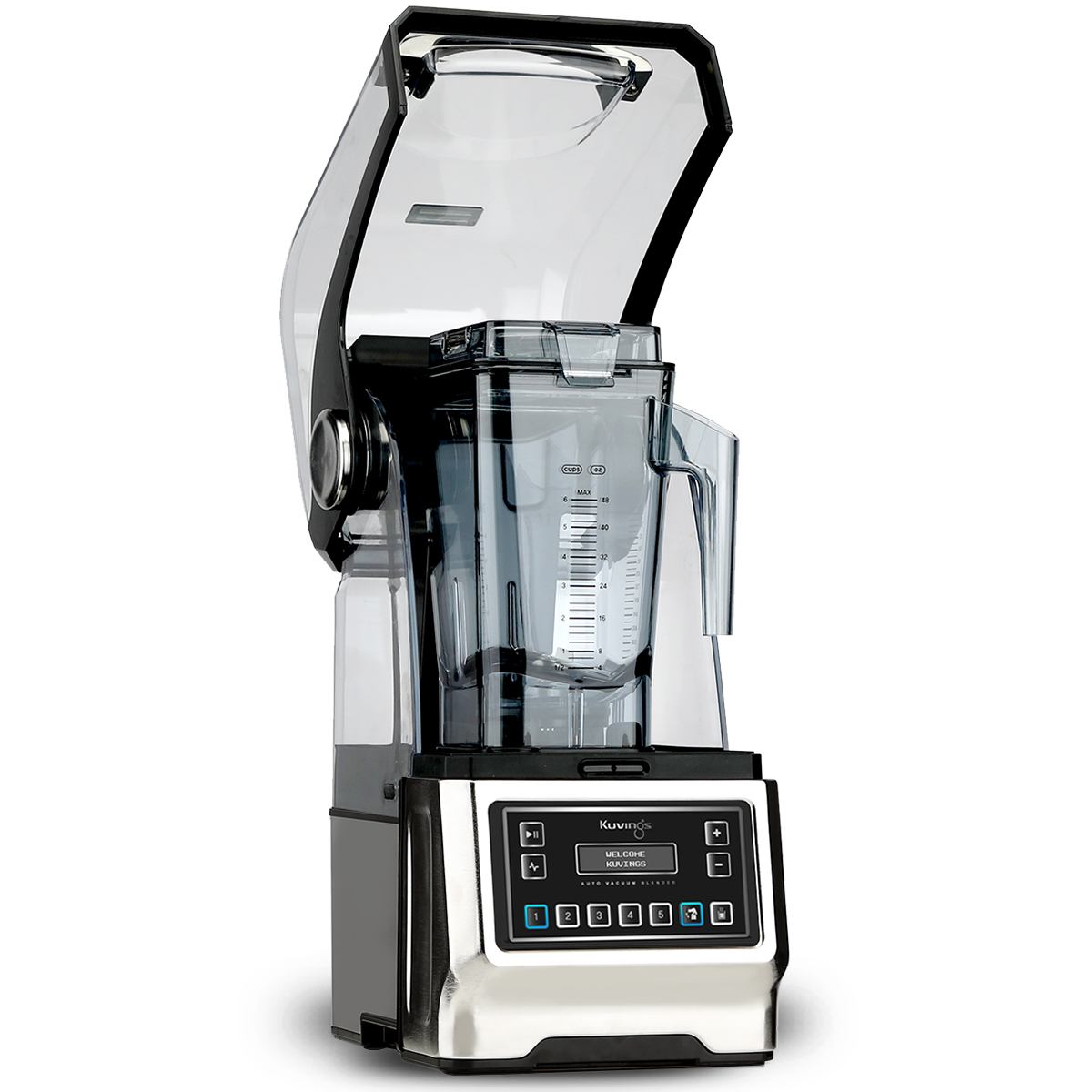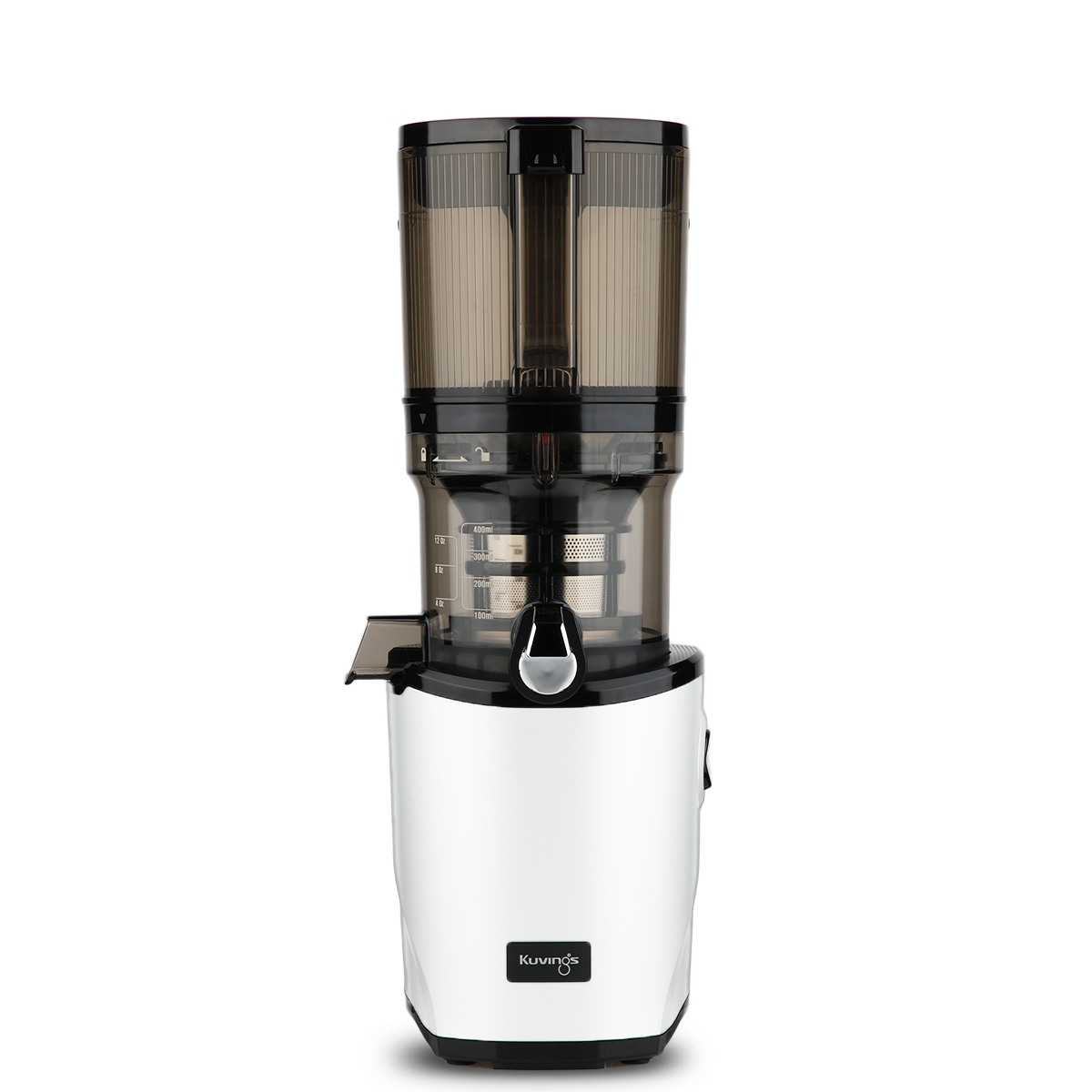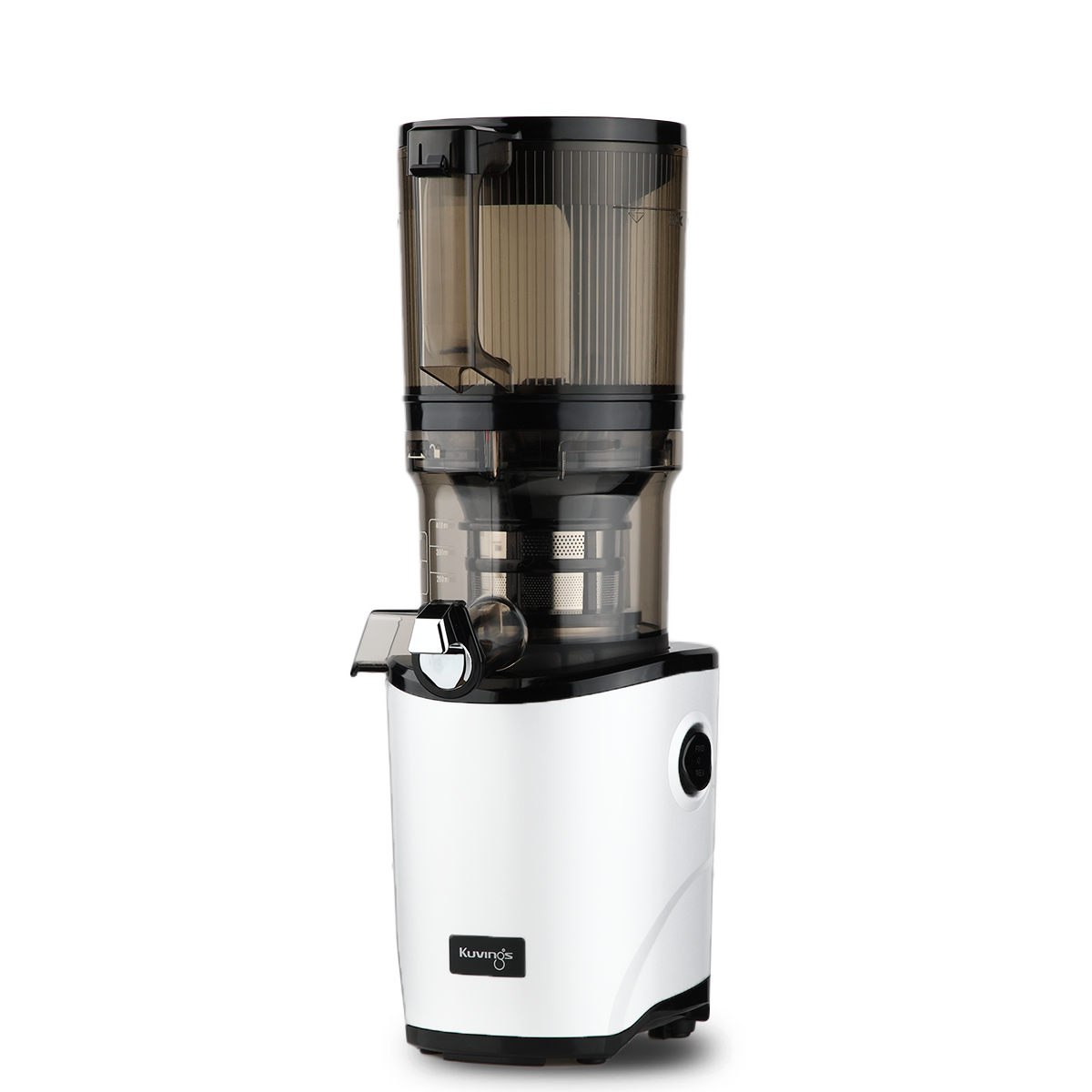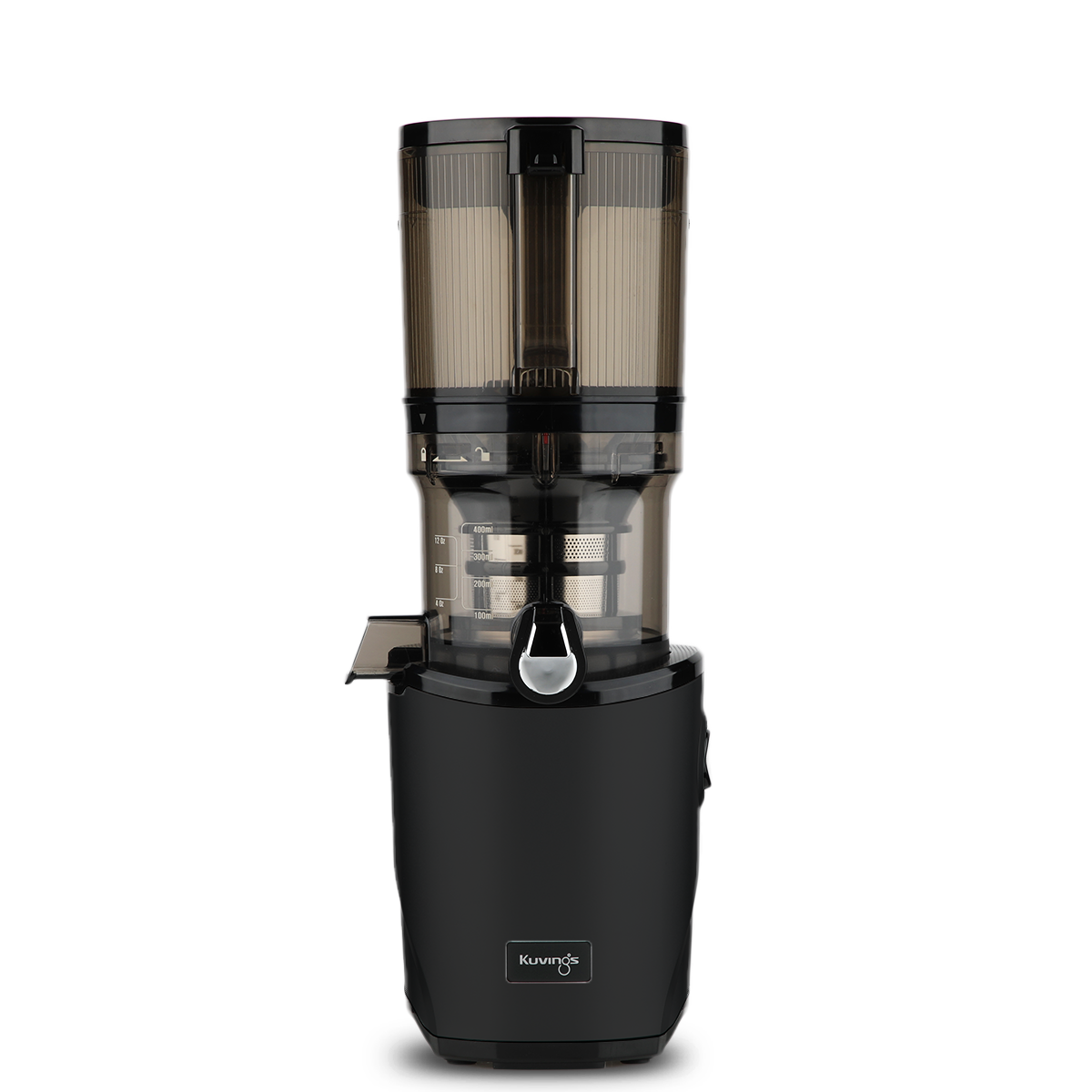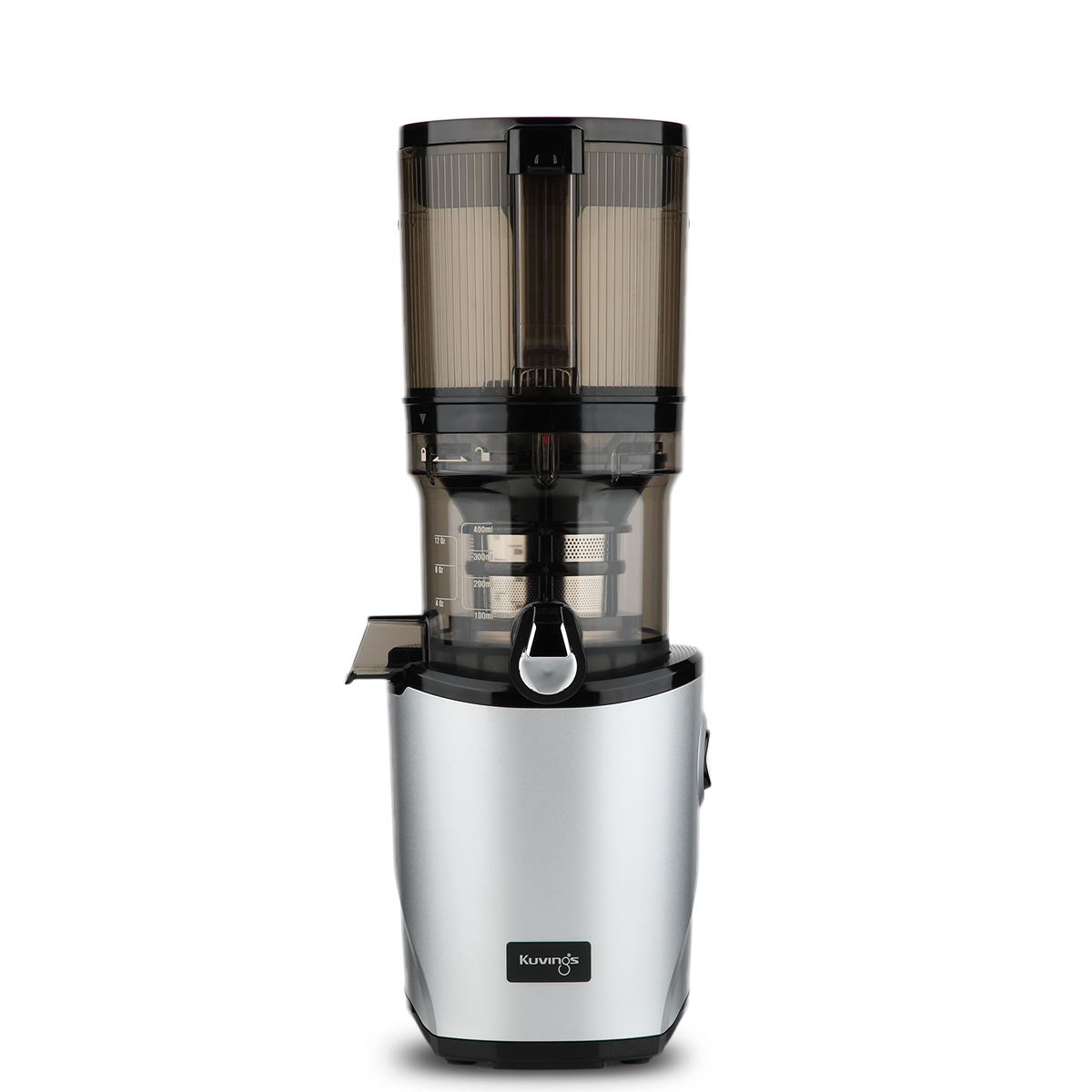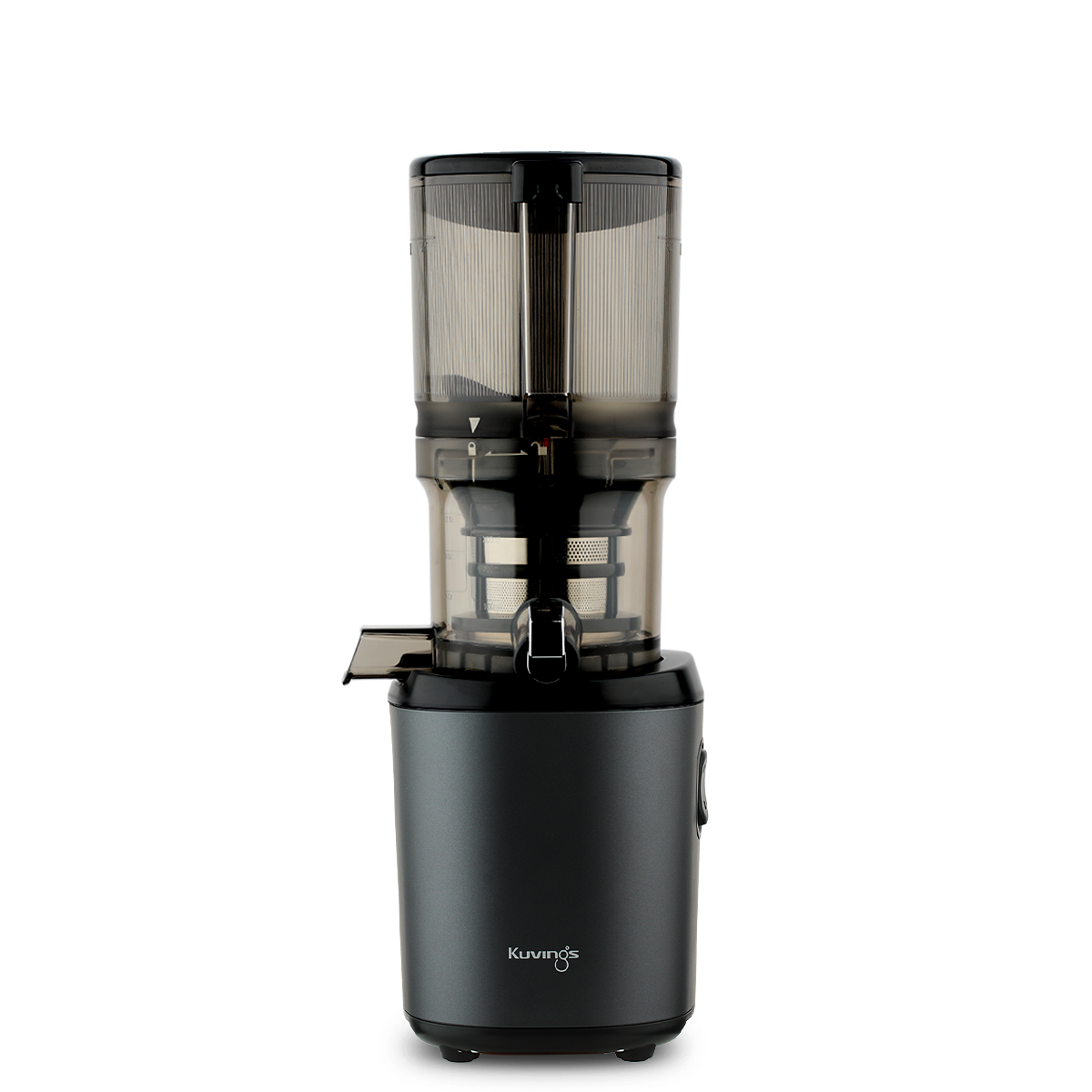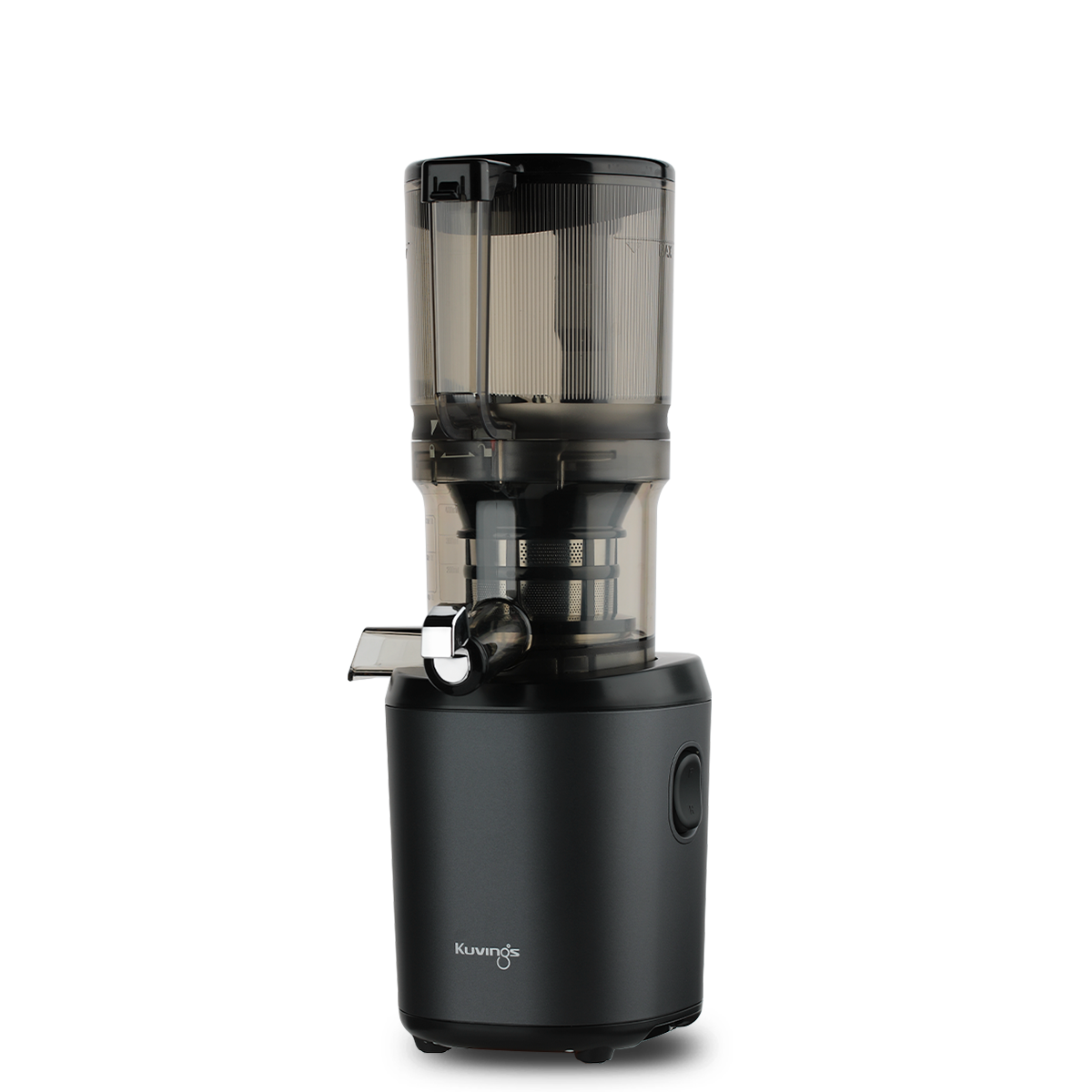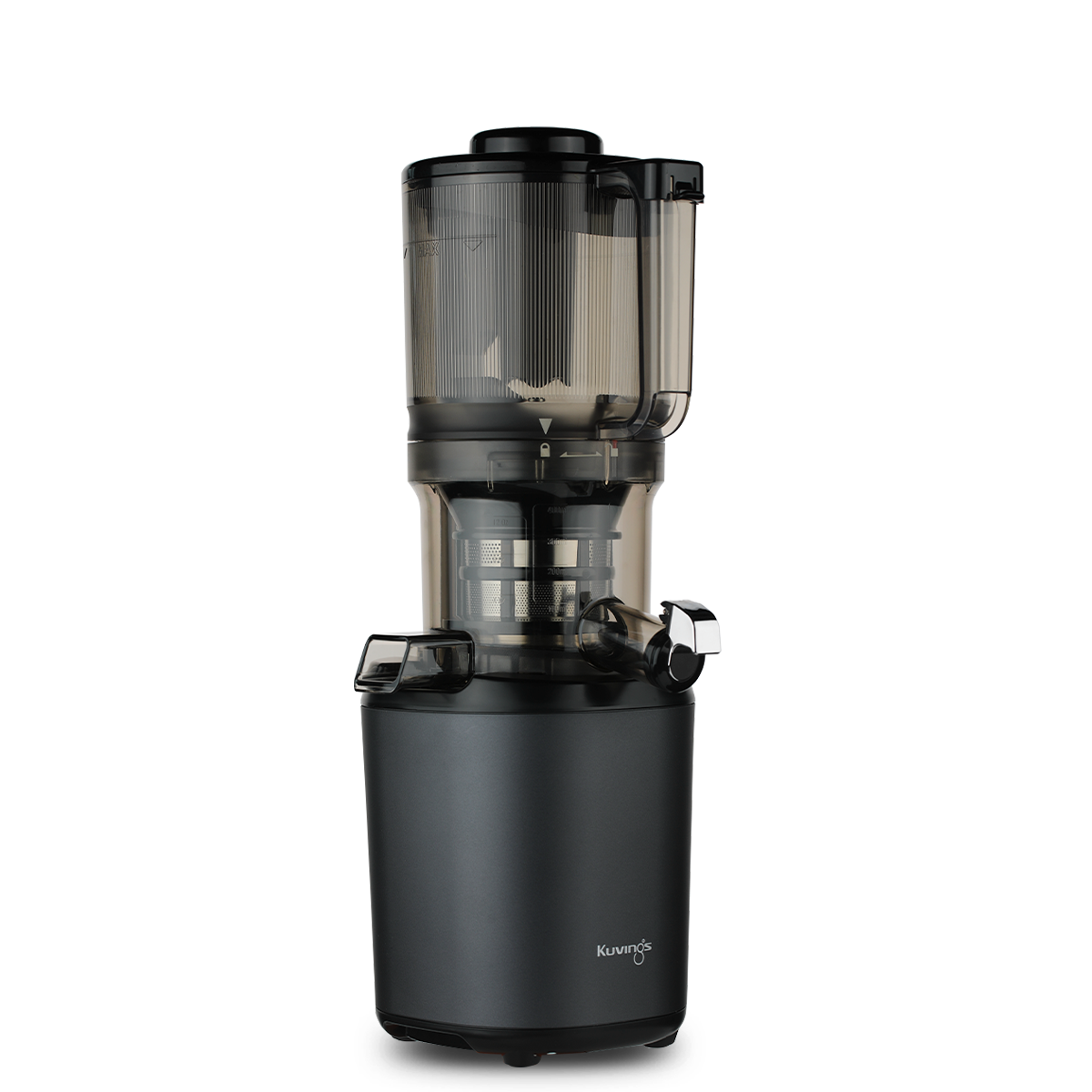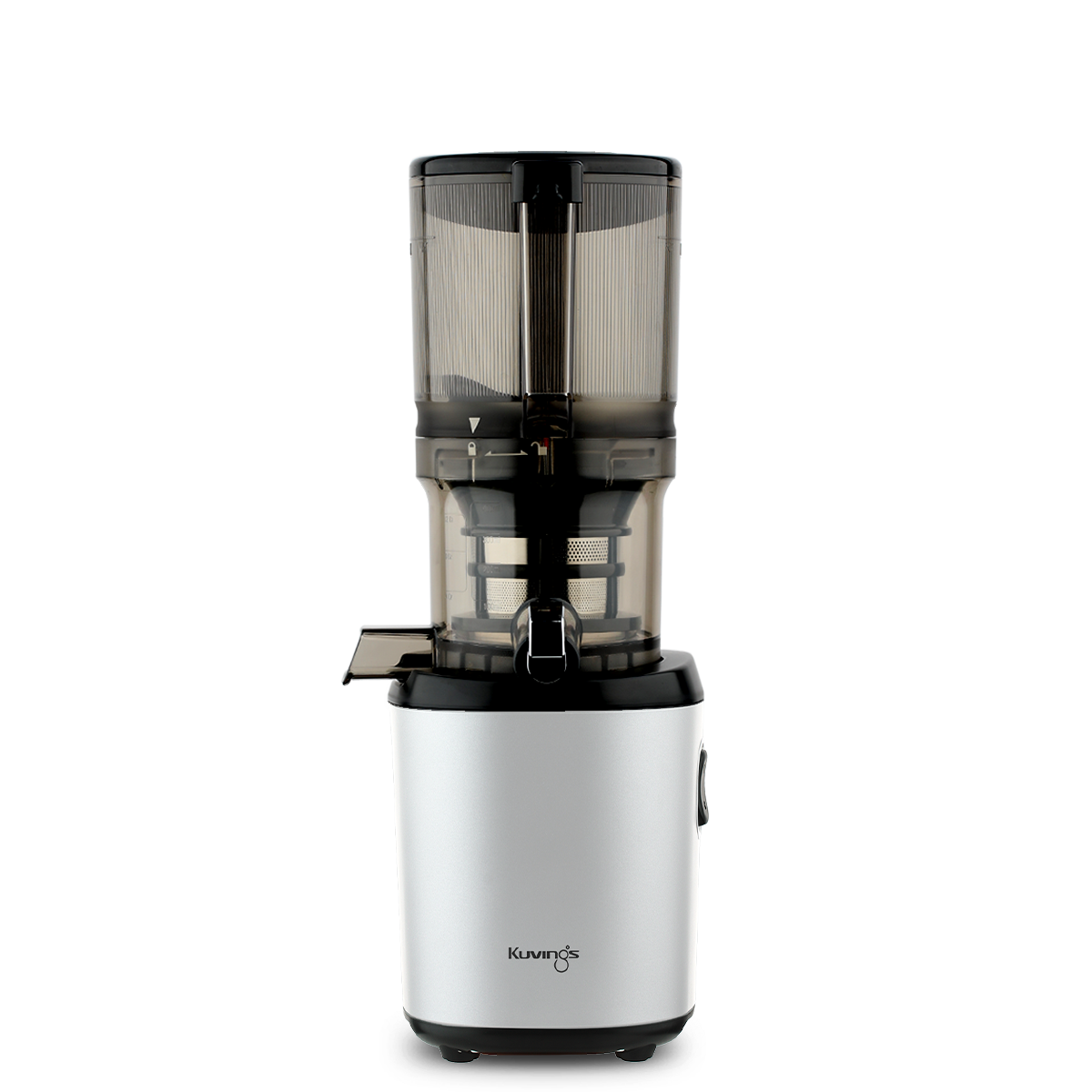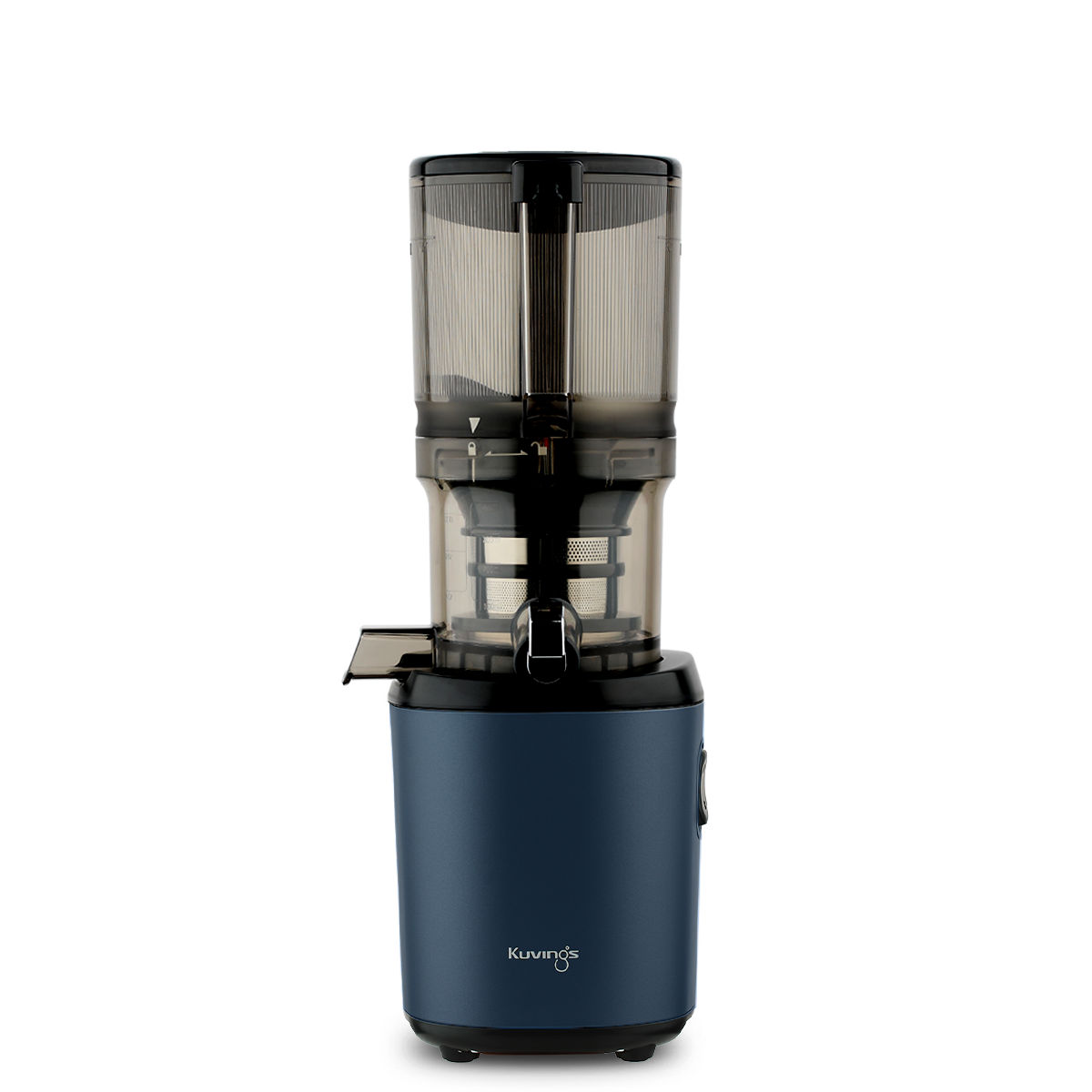This juice recipe is great to make ahead of time so you can drink it cold from the fridge on a hot summer day.
You can also serve it fresh poured over ice.
Both cucumber and pineapple contain highly refreshing, living water that gets deep into the body to hydrate your cells. Mango has lots of those all-important electrolytes that get quickly absorbed into the body for even faster hydrating.
Happy Juicing!

Taste
Refreshing and hydrating, well balanced not too sweet.
Ingredients
- 1/2 pineapple
- 2 cucumbers, peeled
- 1 mango
Time: 6 mins
Qty: 800 ml
Serves: 4

Preparation
Pineapple
- Slice off the outer skin
- Cut into long thin strips to fit down the chute
- Chop the core into small chunks
Cucumber (peeled)
- Use a vegetable peeler or knife to thinly slice off the skin
- Cut into chunks to fit down the wide chute
Mango
- Cut down each side of the large stone
- Cut each half into quaters
- Juice with skin on

Cold Press Juicing Method
To make this juice recipe start by adding the mango quarters to the juicer on by one.
Next, add the cucumber chunks. Go slow with cucumber letting the juicer press each piece through before adding the next.
Add the pineapple strips next, one by one.
Finish by adding all the pineapple core at the end.
Tip #1: you can carve more mango chunks off the middle section around the seed and add it to the juicer. I like to peel the middle section and eat the mango off the seed. Up to you.
Tip #2: shake or stir well before drinking as the soluble fibre will float to the top of the high water content of this juice.
AUTO10 Layering: I did put the pineapple in first in the video however it is recommended to add the softer ingredients (mango and cucumber) first at the bottom of the hopper as the harder ingredients help push the softer ones through the juicer for you.

Health Benefits

Pineapple
Pineapple juice is filled with antioxidants, soluble fibre, and living water which keeps you full and hydrated at the same time. A perfect fruit to juice for weight loss.
Nutrition: Pineapple has large amounts of vitamin C like its orange cousin, but it also has bromelain, an enzyme that helps suppress coughs and loosens the mucus that often accompanies colds.
Immune System: The power of bromelain and vitamin C in pineapple work together as a bacteria fighter, mucus cutter, cough suppressant, and overall immune system booster in the body. One cup of pineapple juice supplies over 50% of the daily amount of manganese, a trace mineral important in energy production and antioxidant defenses.
Pineapple strengthens the immune system. Look at the armor of protection around the flesh. The fruit can take up to 2 years from flower to fruit. It has to outlast all four seasons... twice, which means that pineapple's resilient, strong, energetic nature gets passed onto us when we consume them.
Respiratory System: Pineapple contains bromelain, a mixture of enzymes that has anti-inflammatory properties. Bromelain may help reduce inflammation in the respiratory tract, making it easier to breathe, especially for individuals with conditions like asthma or chronic obstructive pulmonary disease (COPD). Pineapple is a good source of vitamin C, which is important for immune function and respiratory health. Vitamin C helps protect the lungs from infections and may reduce the severity of respiratory symptoms.

Cucumber
Cucumber juice is highly alkalinizing and very hydrating. When your blood is well hydrated it can carry more oxygen which increases energy levels, kills bacteria and viruses and improves circulation.
Nutrition: Cucumbers are a good source of vitamins K and C, as well as minerals like potassium and magnesium. These nutrients are important for bone health, immune function, and heart health. Cucumbers contain antioxidants like beta-carotene, vitamin C, and flavonoids, which help protect cells from damage caused by free radicals and may reduce the risk of chronic diseases.
All Systems: Cucumbers can counteract toxins and lift depression; cleanse the blood; quench thirst, moisten the lungs, and purify the skin. They are also a good antidote for conjunctivitis, sore throat, acne, and inflamed skin diseases. Hence the saying, 'cool as a cucumber'.
Cardiovascular / Circulatory System: Cucumbers are a good source of potassium, which helps regulate blood pressure. A diet rich in potassium can help lower blood pressure and reduce the risk of heart disease and stroke. Cucumbers contain antioxidants like beta-carotene and flavonoids, which help reduce inflammation and oxidative stress in the body, both of which are linked to heart disease.
Digestive System: Cucumber juice also cools most inflammatory or heat-related conditions, including stomach inflammation. The fiber in cucumbers acts as a prebiotic, feeding the beneficial bacteria in the gut. This can help maintain a healthy balance of gut bacteria, which is important for overall digestive health. Cucumbers are also allies to the liver due to their ability to hydrate it. Your liver’s always in need of living water that’s filled with minerals and other nutrients because your liver keeps your blood hydrated. It relies on sources such as cucumber for that living water.
Integumentary (Skin) System: Cucumbers contain silica, a compound that is important for healthy connective tissues, including skin, hair, and nails. Applying cucumber slices to the skin may also help soothe sunburns and reduce swelling.

Mango
Mango is one of the most popular and nutritionally rich fruits in the world and are often referred to as “The King of the Fruits”.
Nutrition: Mangoes are rich in vitamins and minerals, particularly vitamin C, which supports the immune system and aids in wound healing. They also contain vitamin A, which is important for vision and immune function, as well as fiber, which aids in digestion. Additionally, mangoes are a good source of antioxidants, such as beta-carotene, which may help protect against certain diseases.
Cardiovascular / Circulatory System: Mangoes are rich in vitamins and minerals, including vitamin C, vitamin A, and potassium. These nutrients support heart health by reducing inflammation, lowering blood pressure, and supporting overall cardiovascular function.
Muscular System: Mango is also an amazing exercise food because it provides your muscles with traces of sodium, preciously needed glucose, and magnesium, which translates to longer, harder workouts while feeling less of “the burn.” It also plays a role in muscle, tendon, and bone growth.
Nervous System: Mango is a miracle sleep aid. When you eat mango before bed, phytochemicals from the fruit, along with amino acids such as glycine, glutamine, and cysteine combined with fructose and glucose, travel to the brain and quickly restore depleted neurotransmitters. Mangos are also excellent for promoting good eyesight and helping to prevent night blindness and dry eyes.

Gary Dowse
Master Juice Chef, Kuvings Australia
Gary is a powerhouse in the world of juicing and plant-based nutrition, driven by an unwavering passion for health and wellness. With certifications in natural juice therapy and whole food plant-based nutrition, Gary is a dedicated educator, empowering individuals to harness the transformative benefits of juicing and plant-based eating.
Through his enlightening books and dynamic online courses, Gary champions the preventative and restorative healing powers of embracing a lifestyle rich in vibrant juices and whole, plant-based foods.
His mission is to inspire and guide others on their journey to optimal health and vitality.
Disclaimer: information contained in this post is for educational purposes only, sourced from various books and websites. If you do anything recommended without the supervision of a licensed medical doctor, you do so at your own risk. The author, Gary Dowse, does not dispense medical advice or prescribe the use of any technique as a form of treatment for physical, emotional or medical problems without the advice of a physician, either directly or indirectly.
